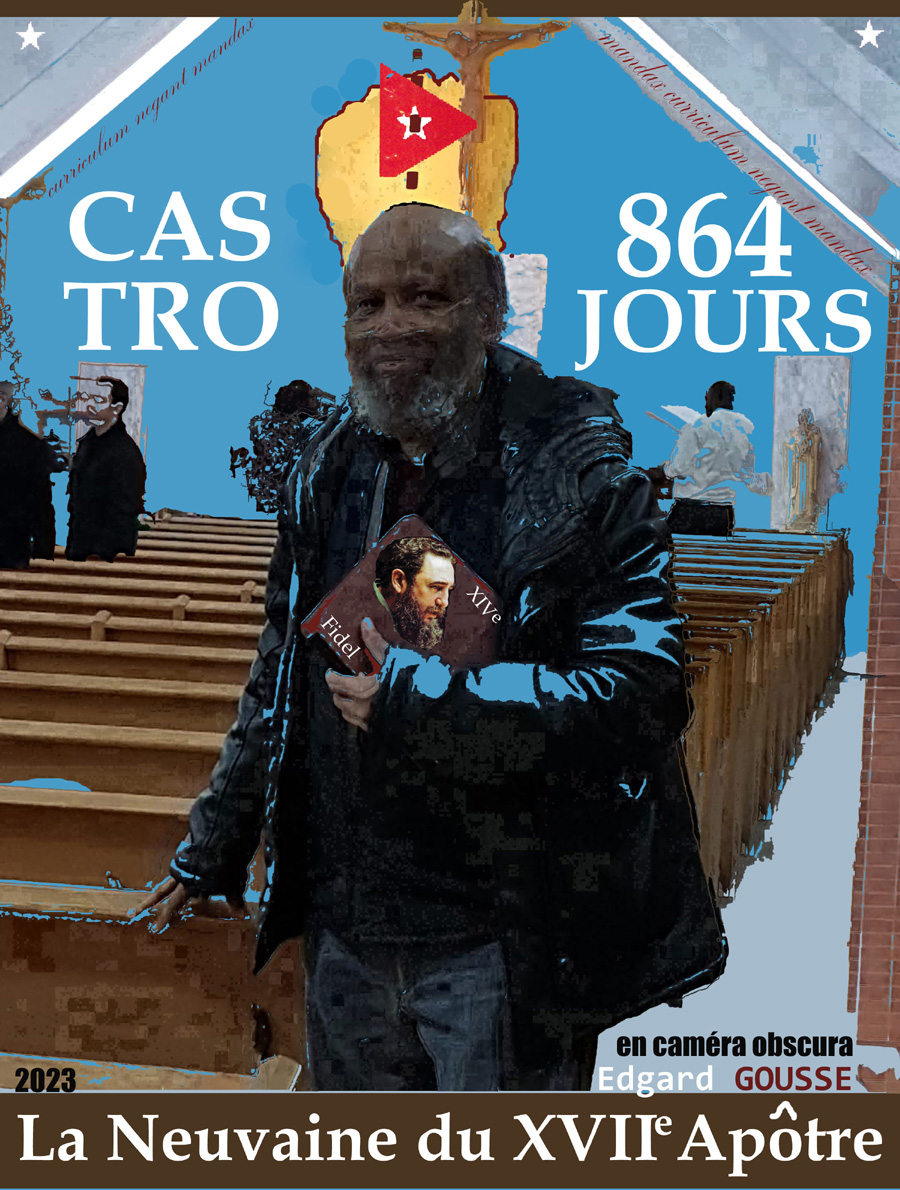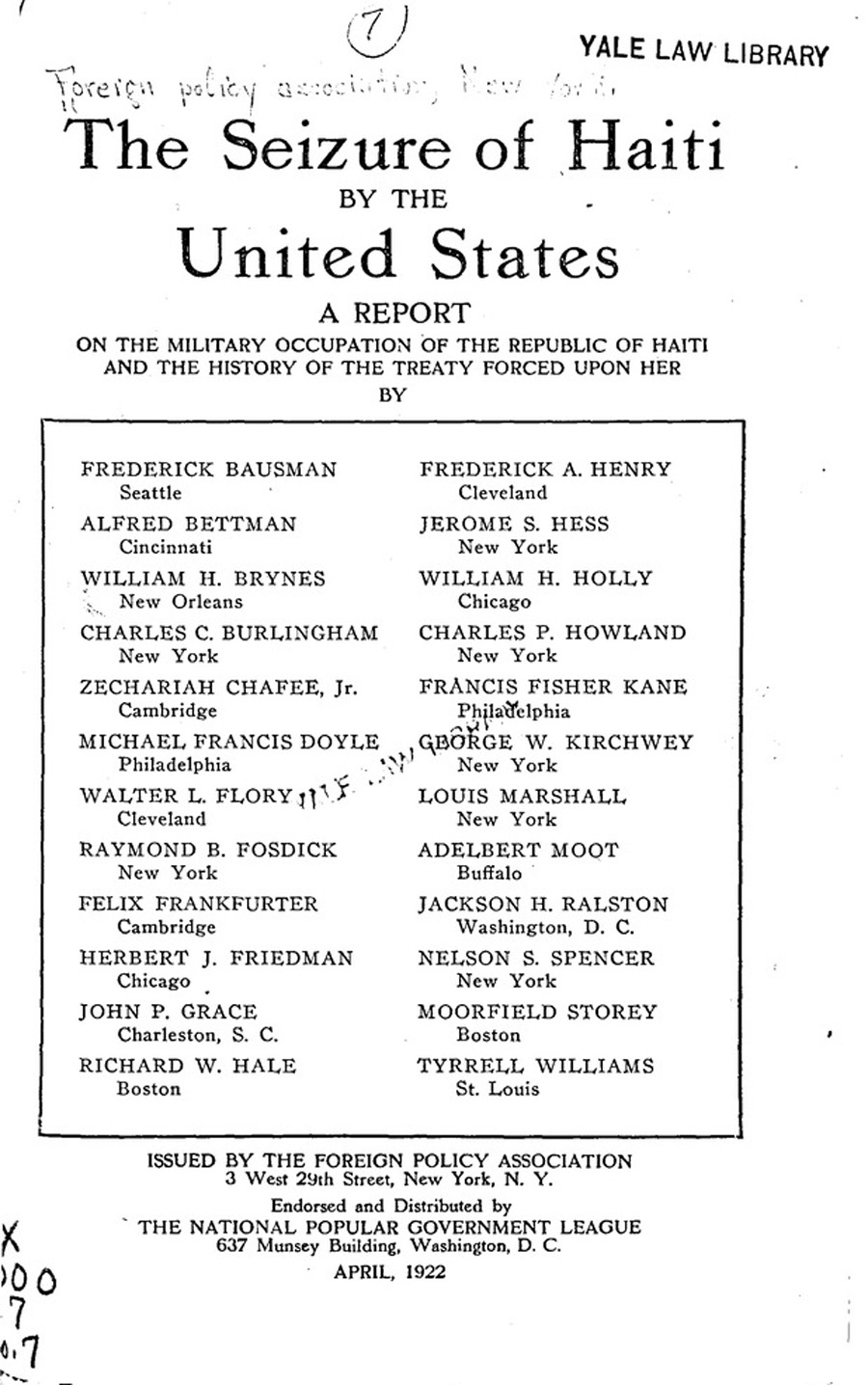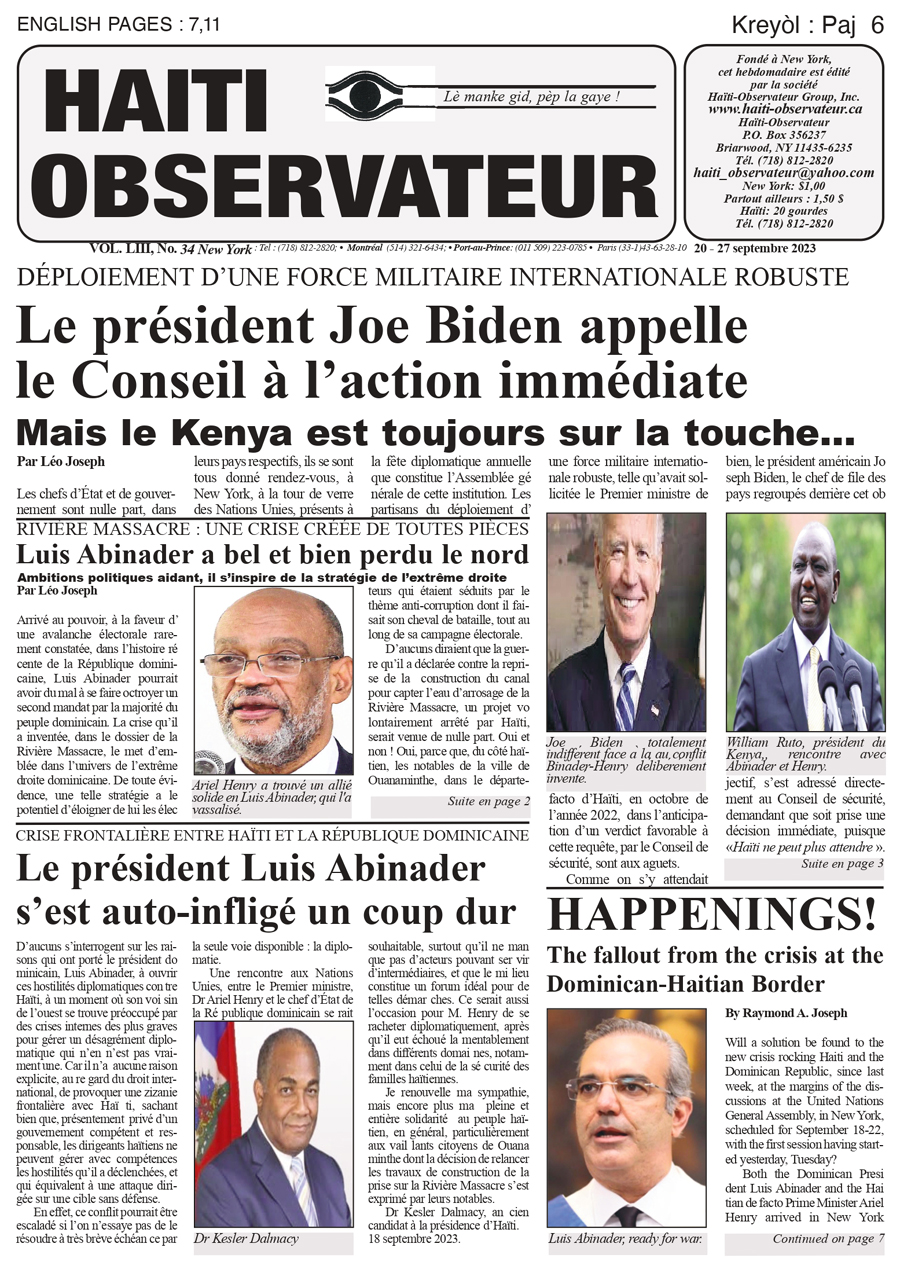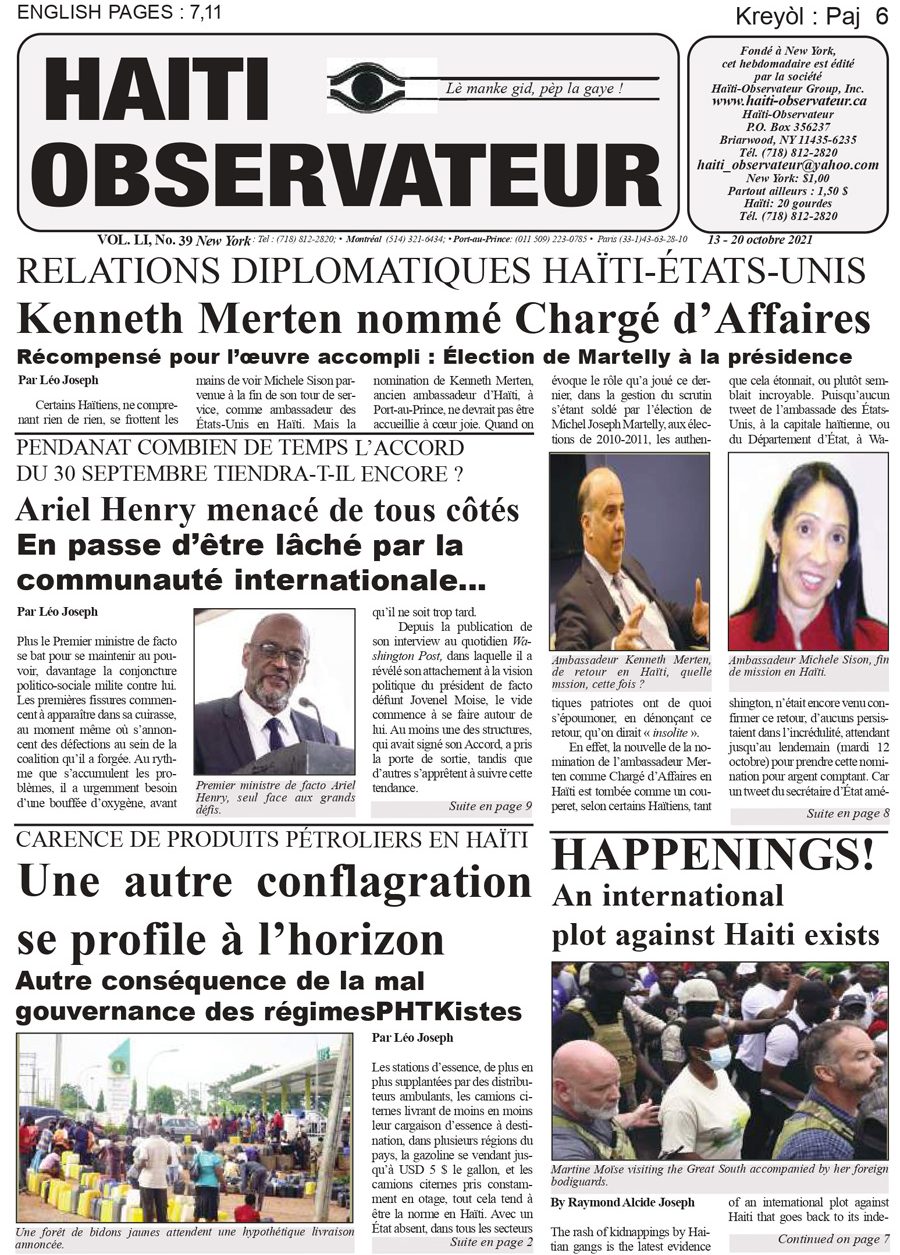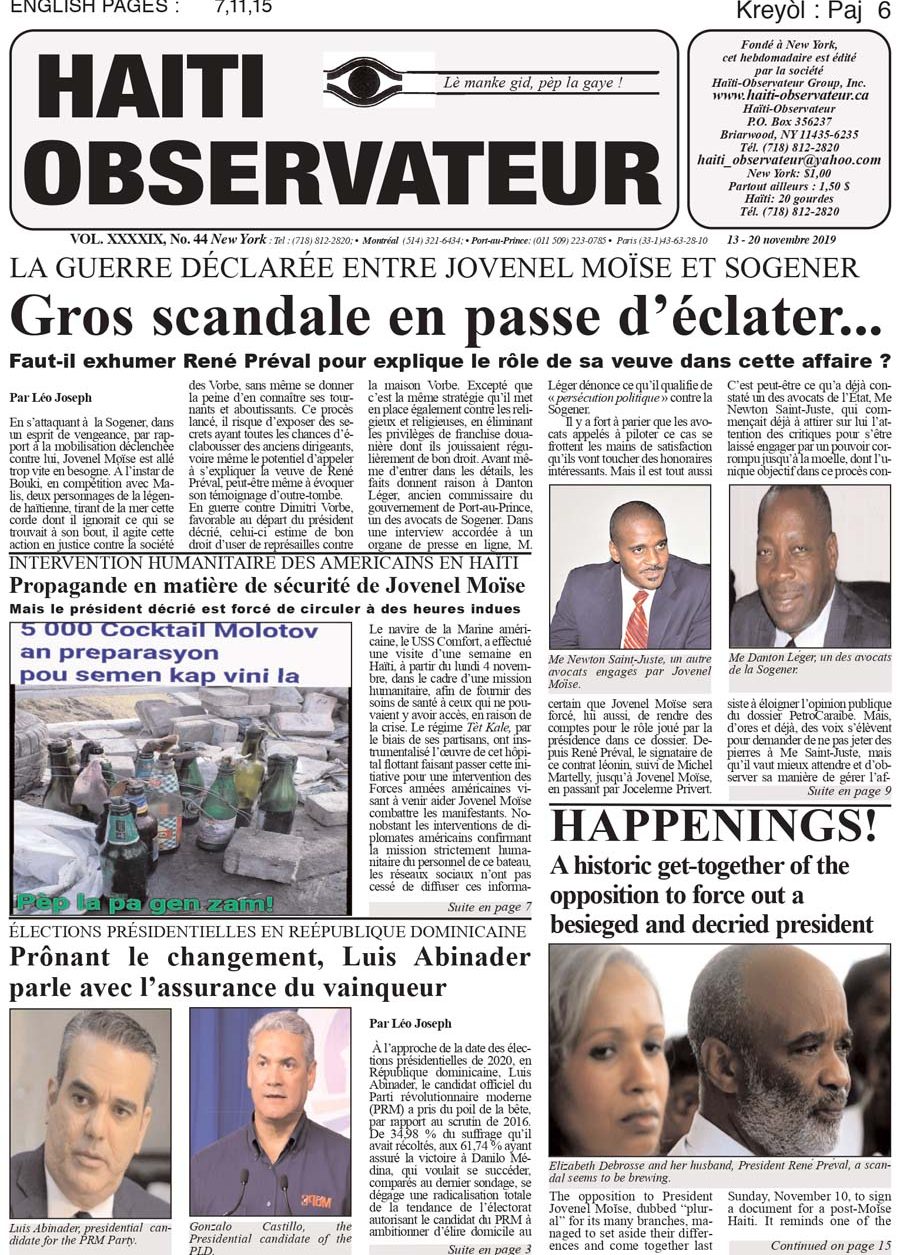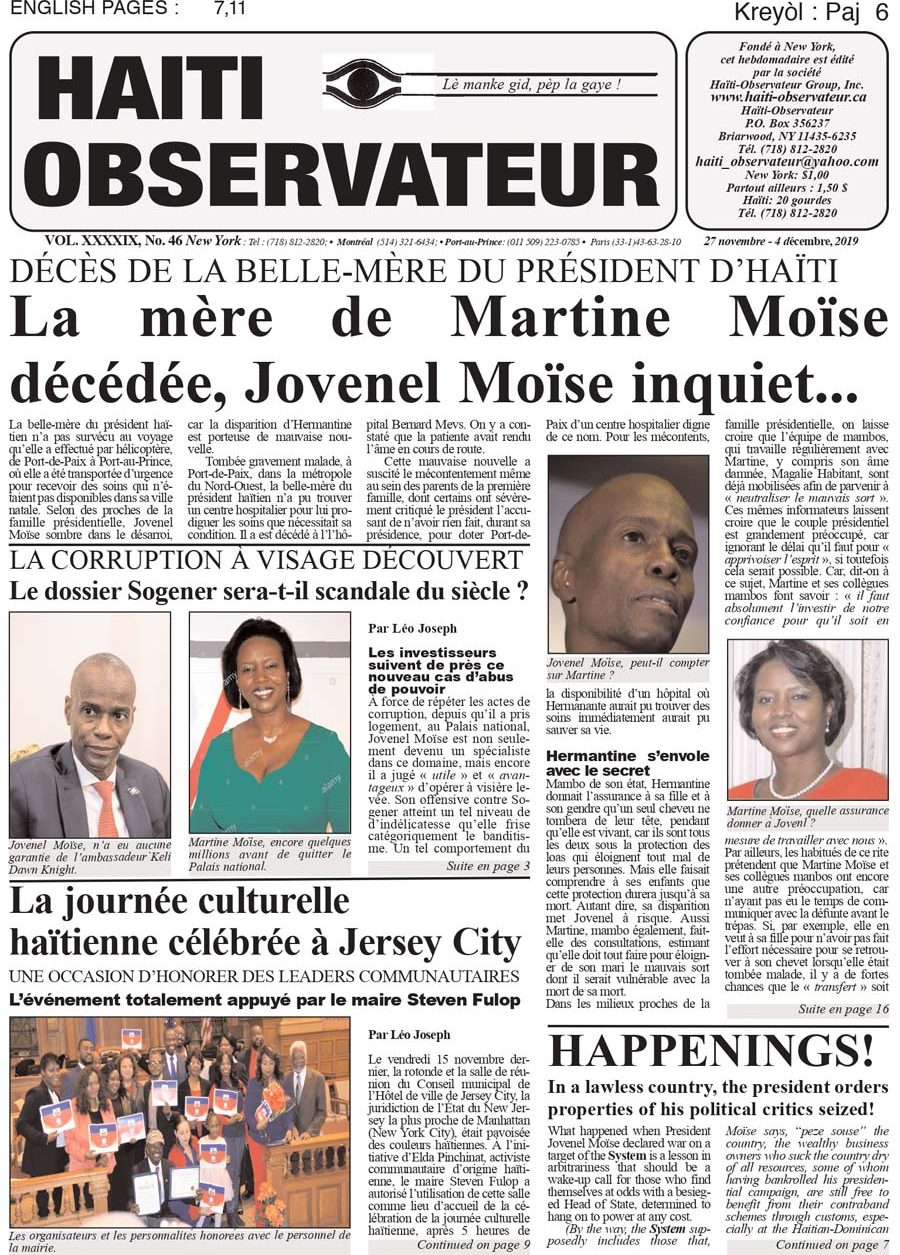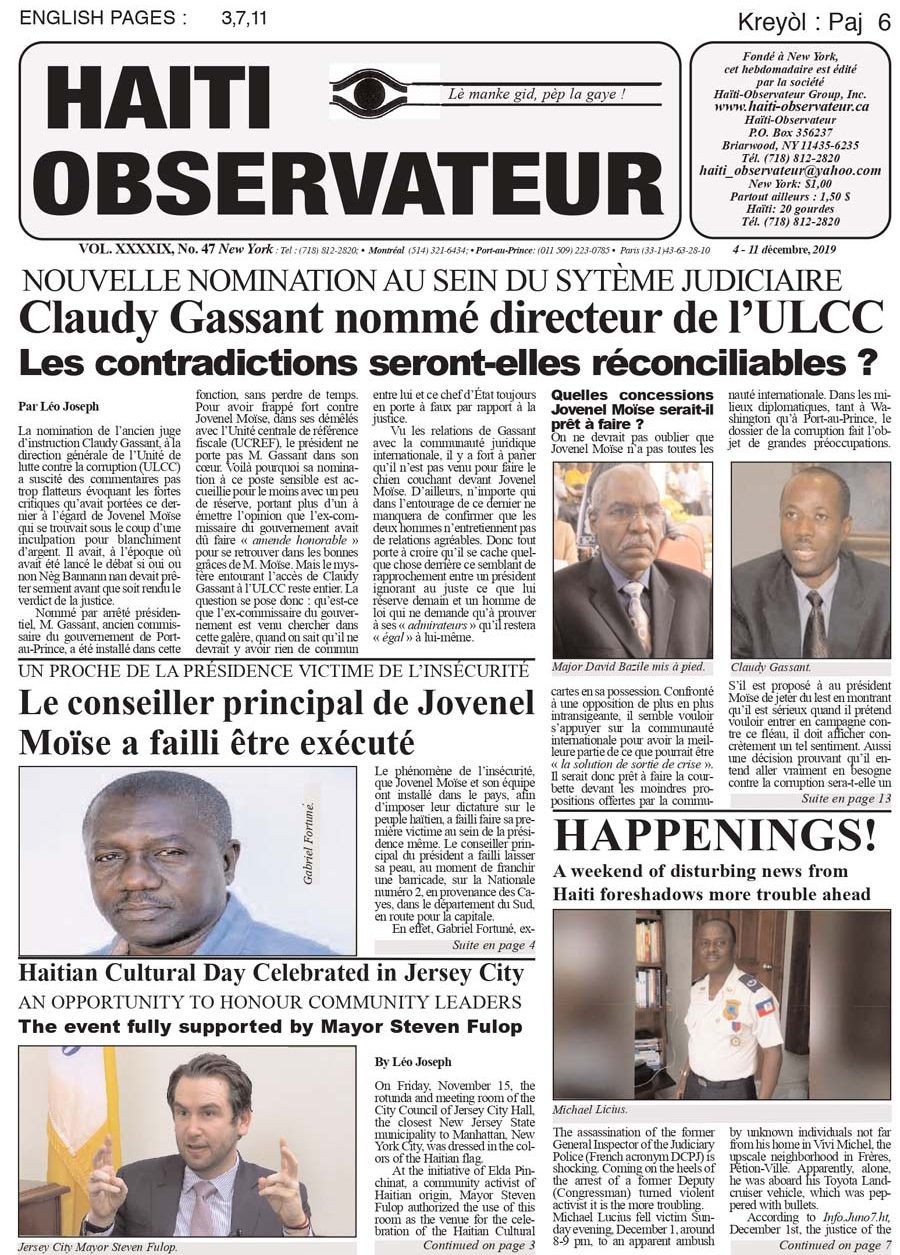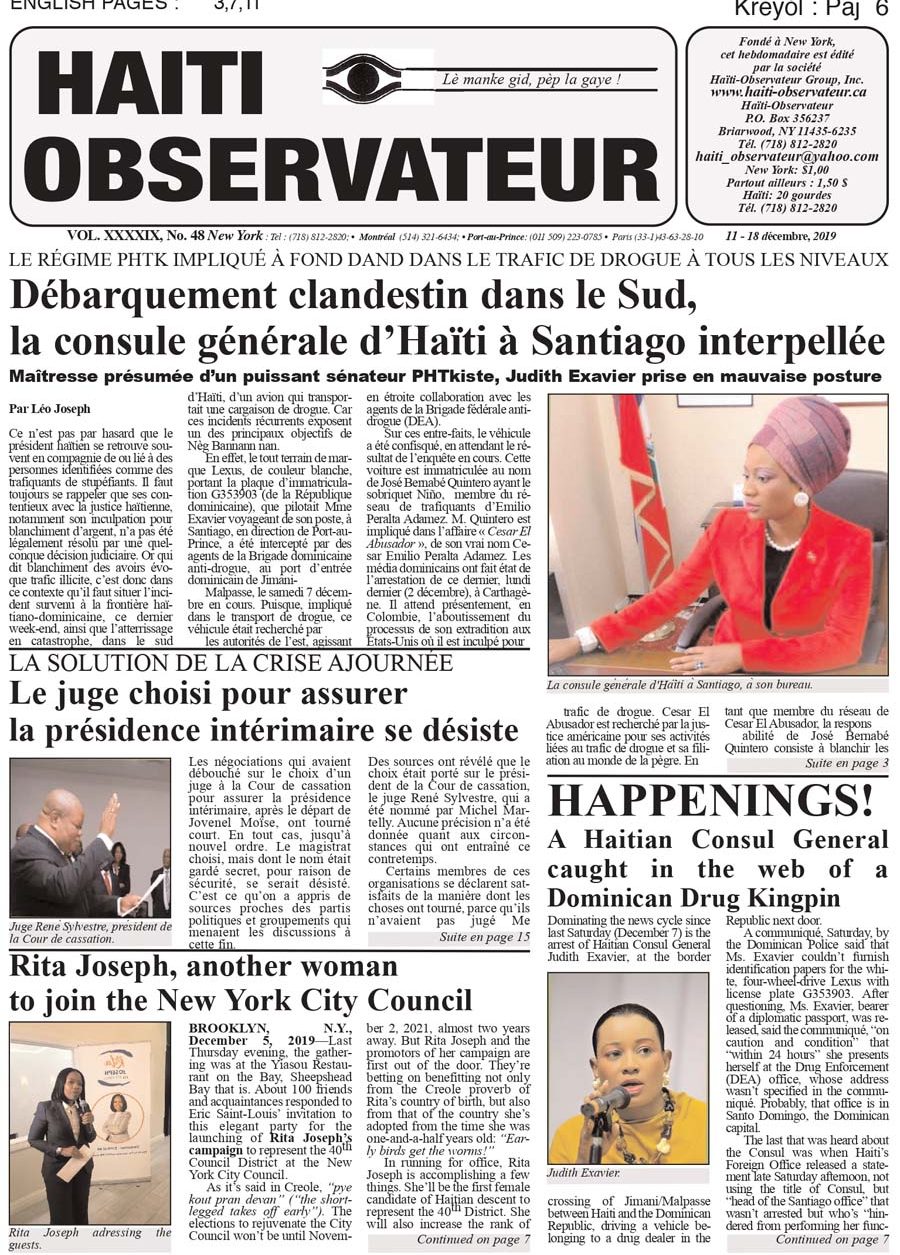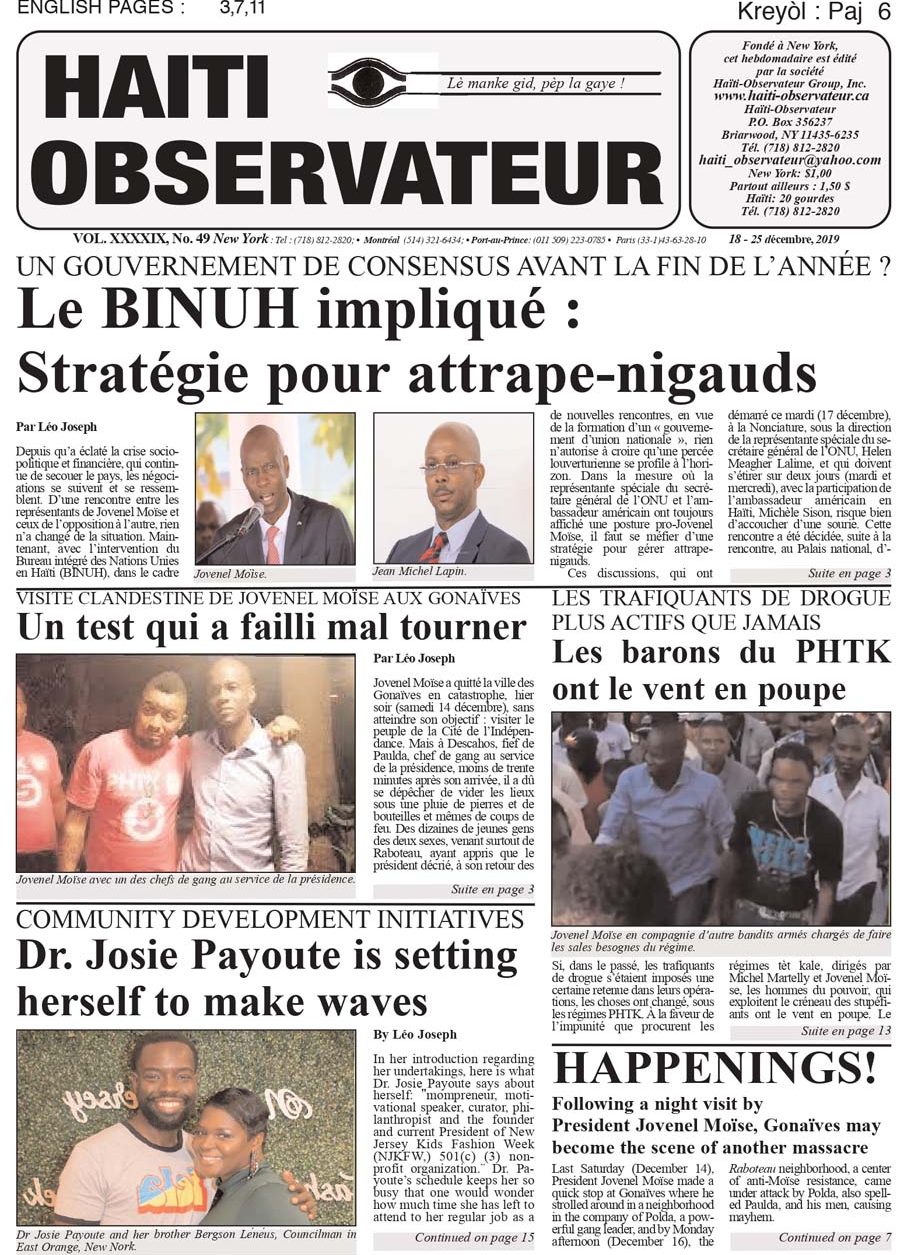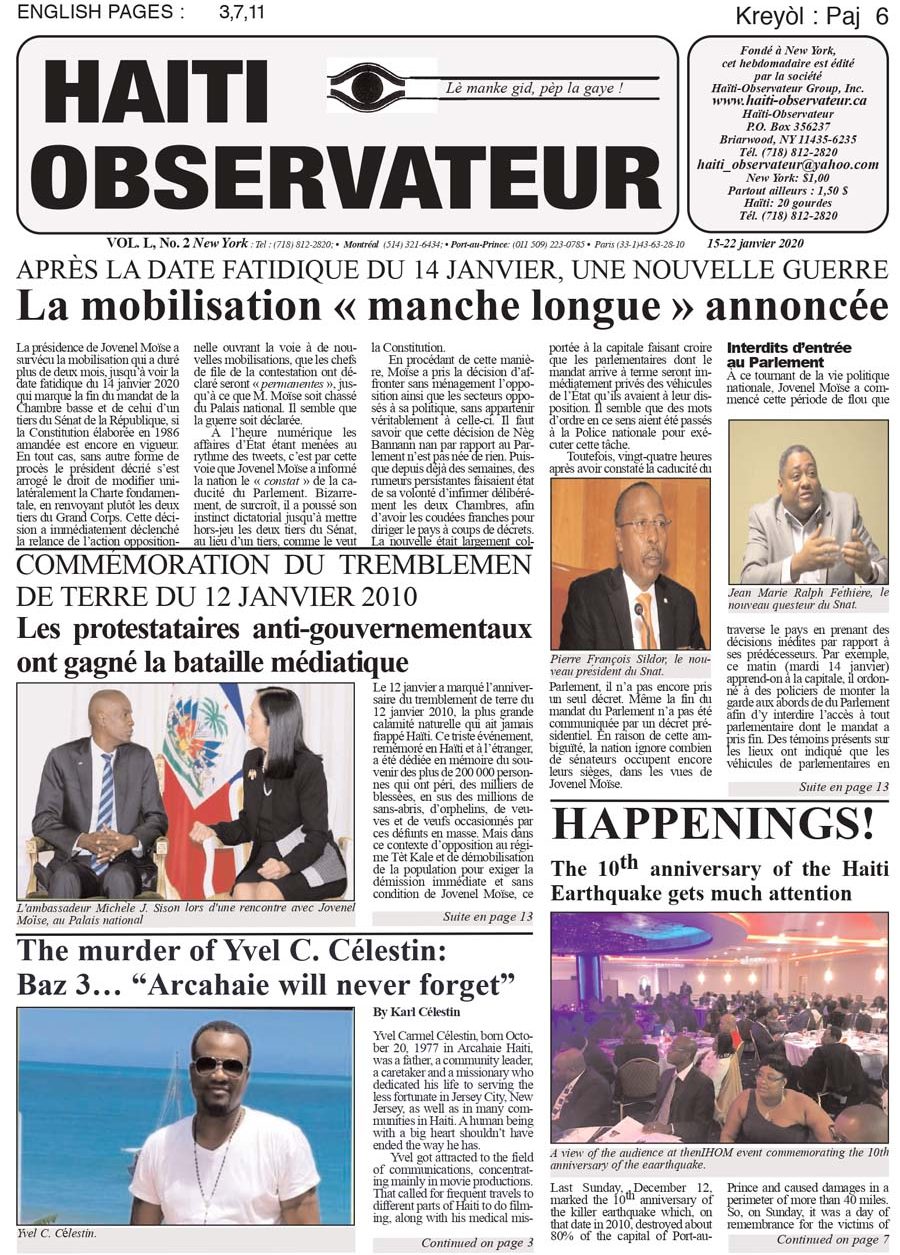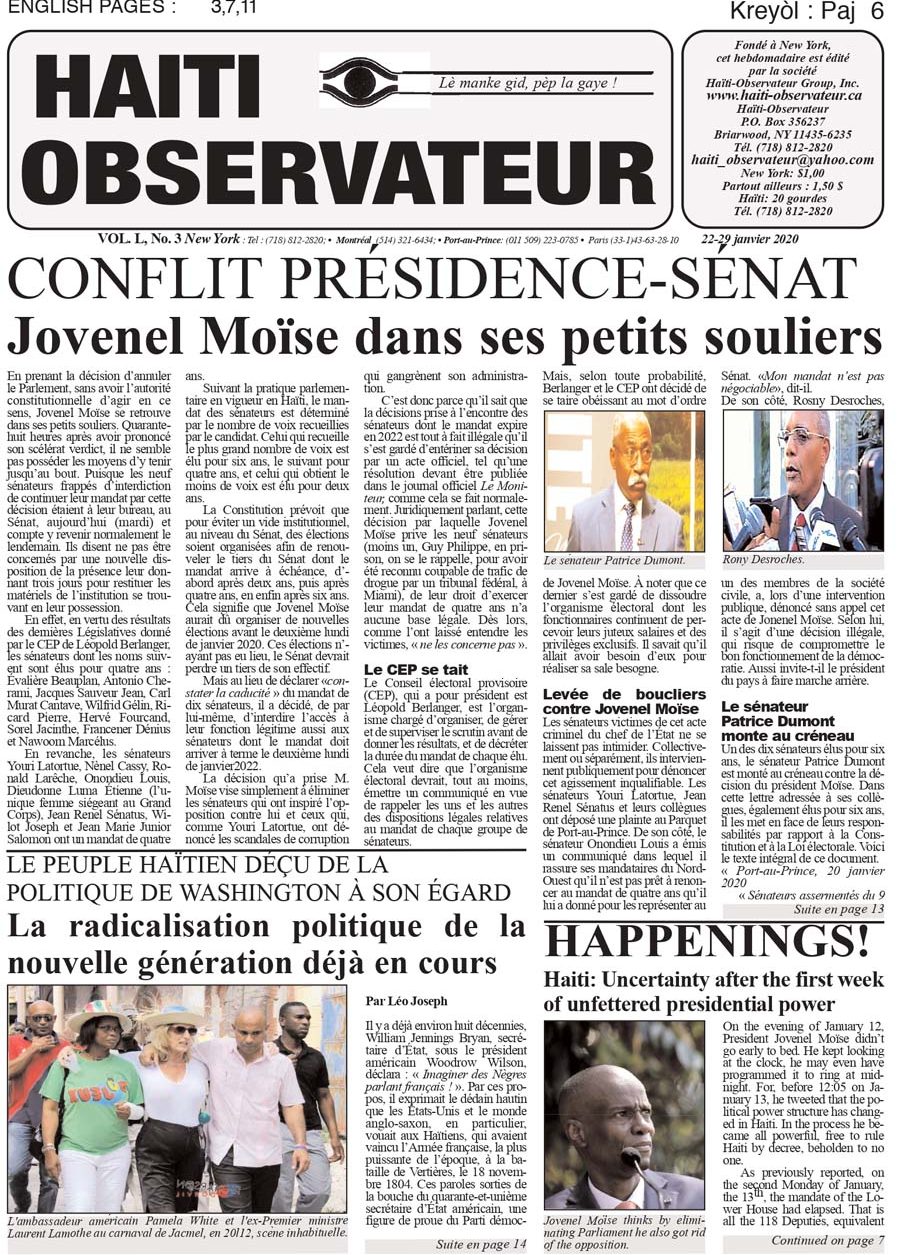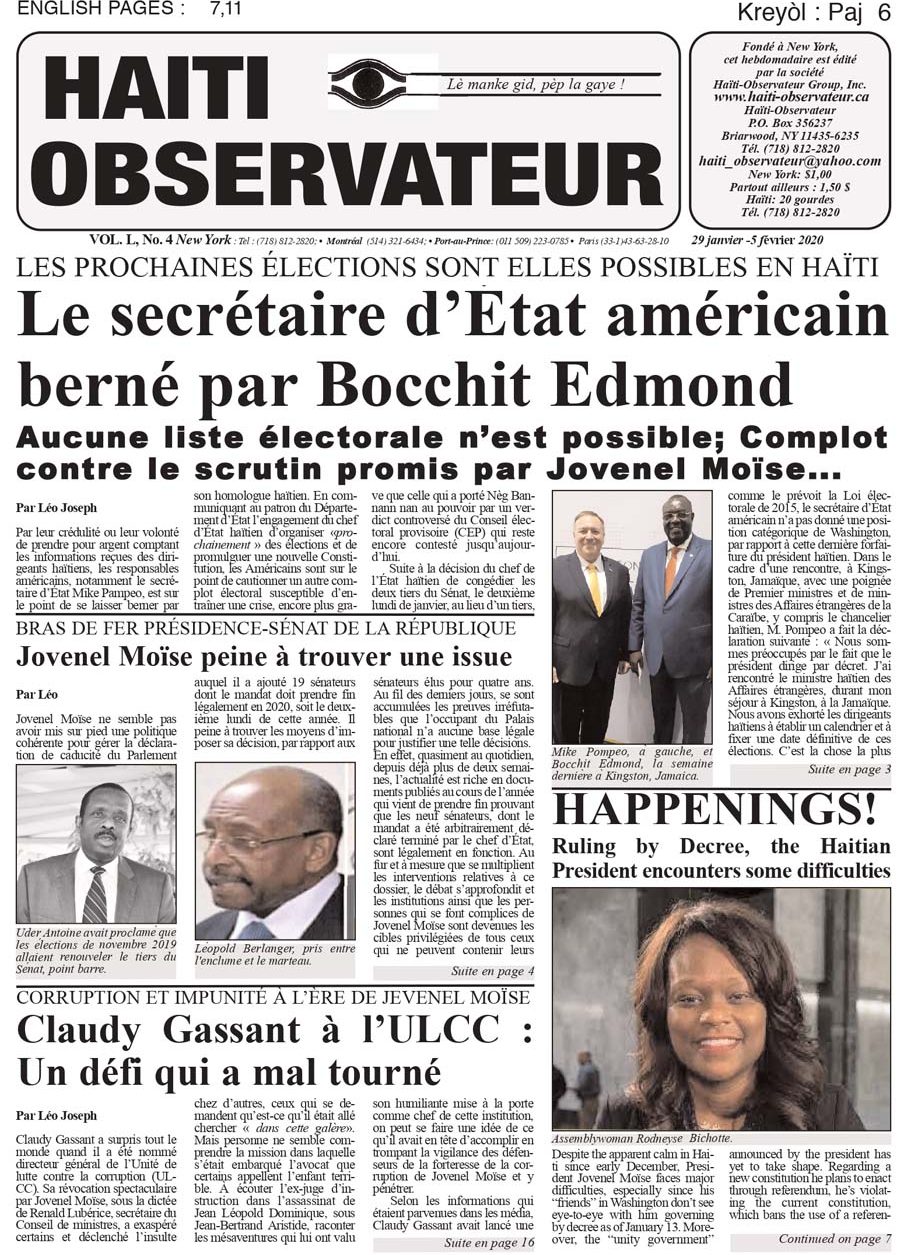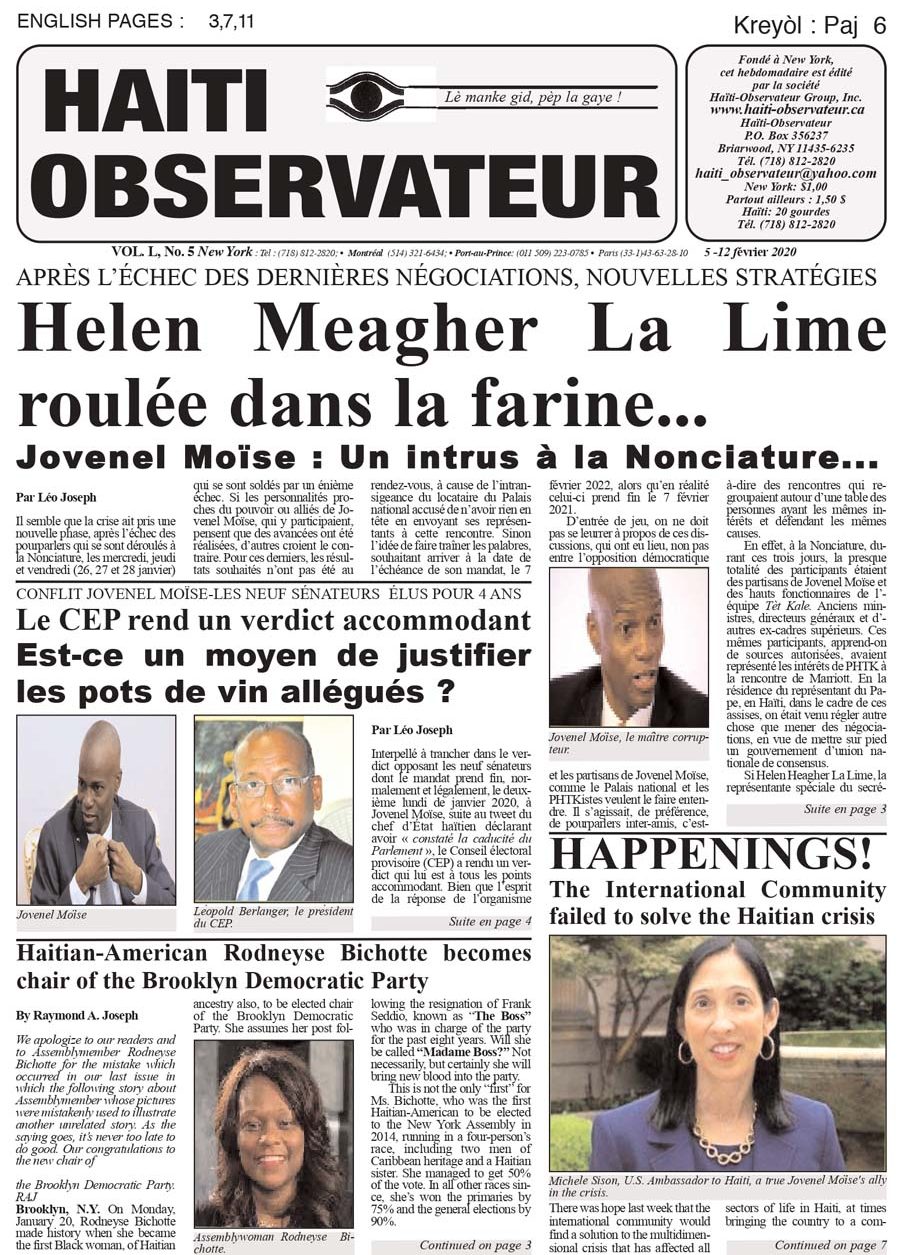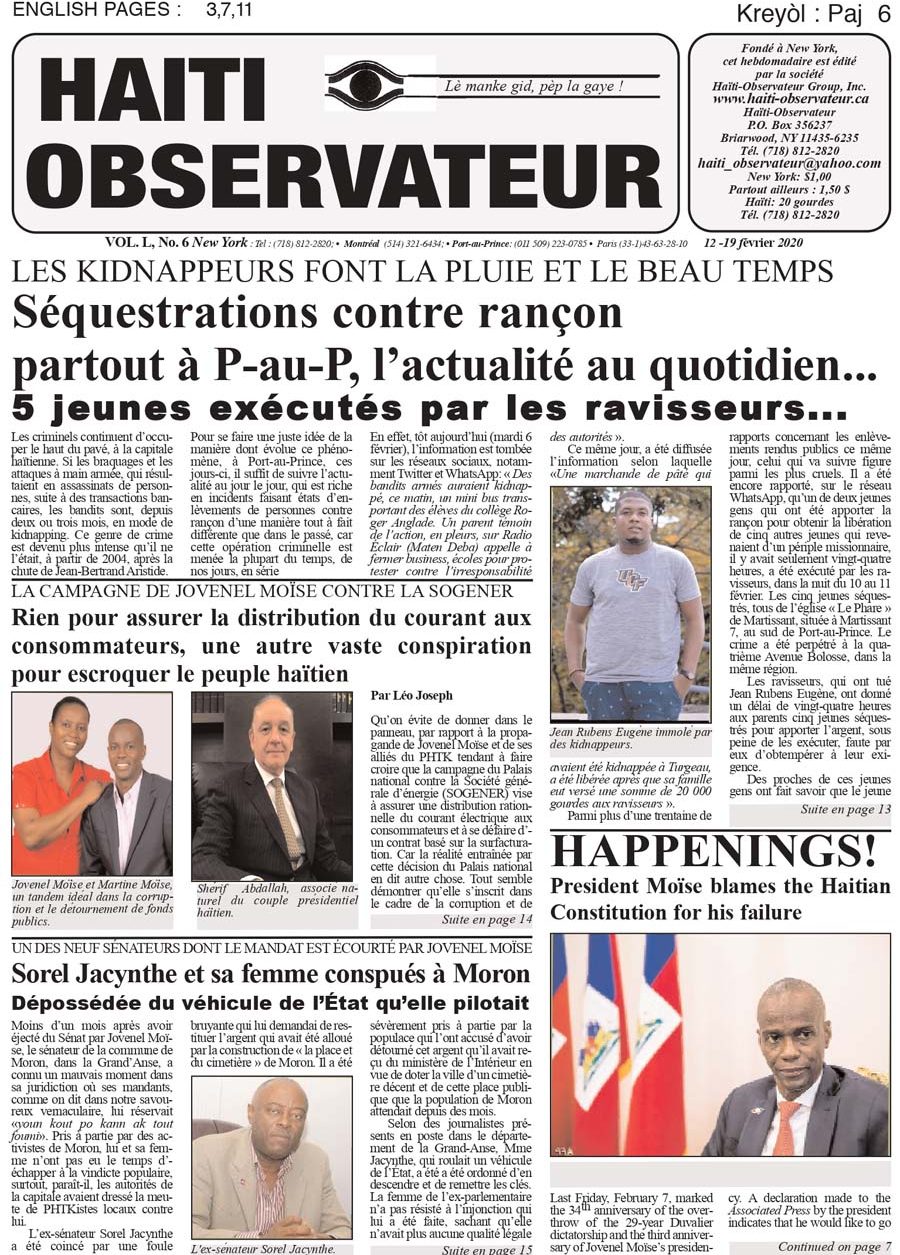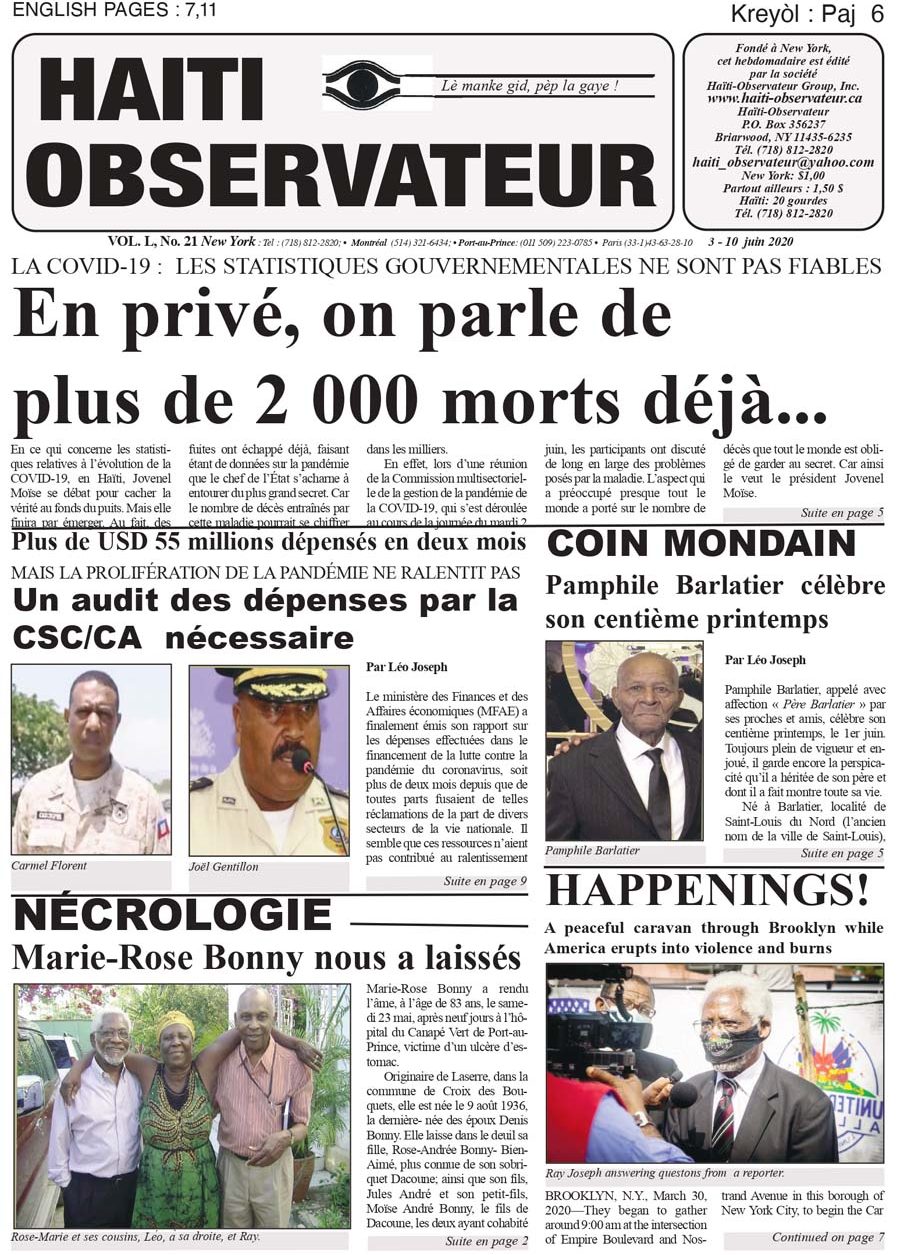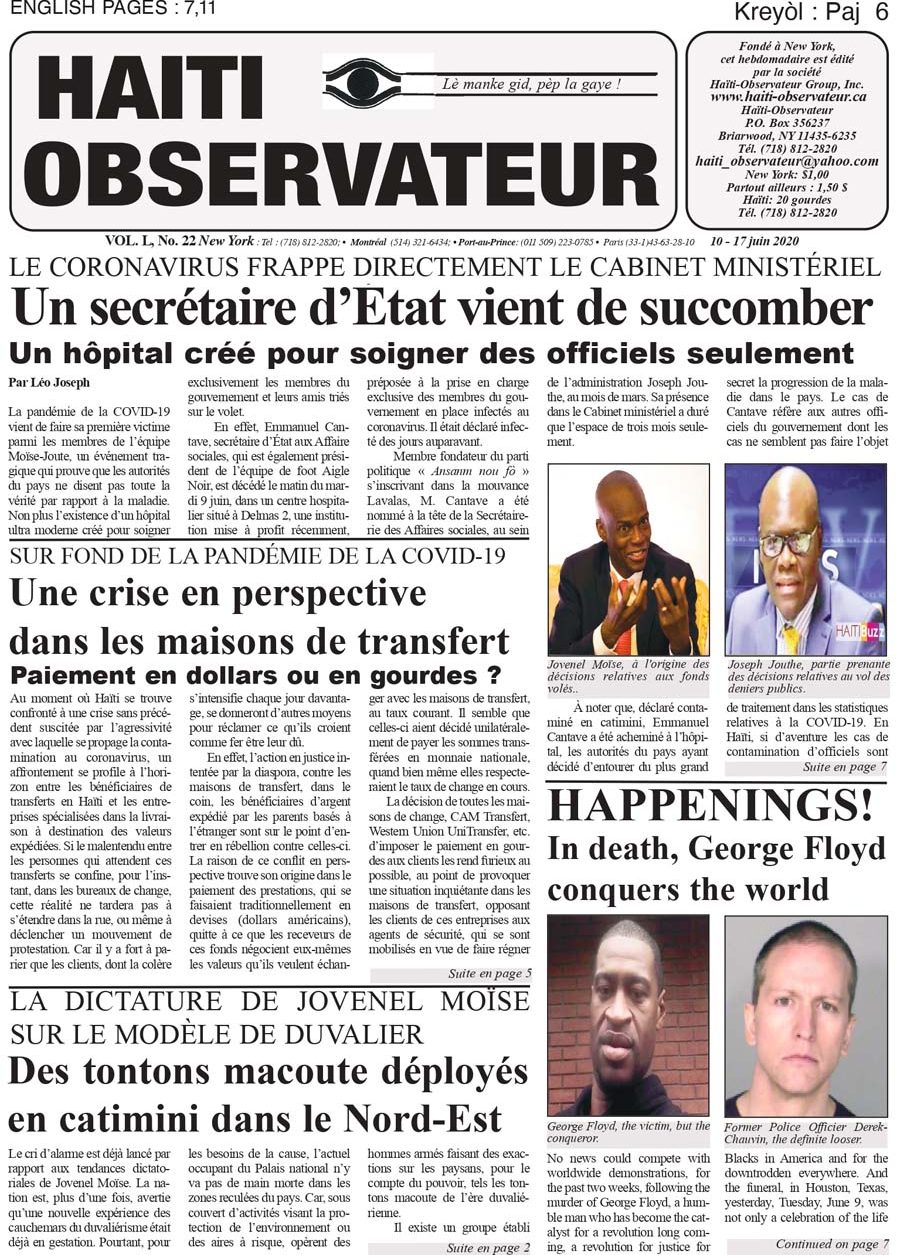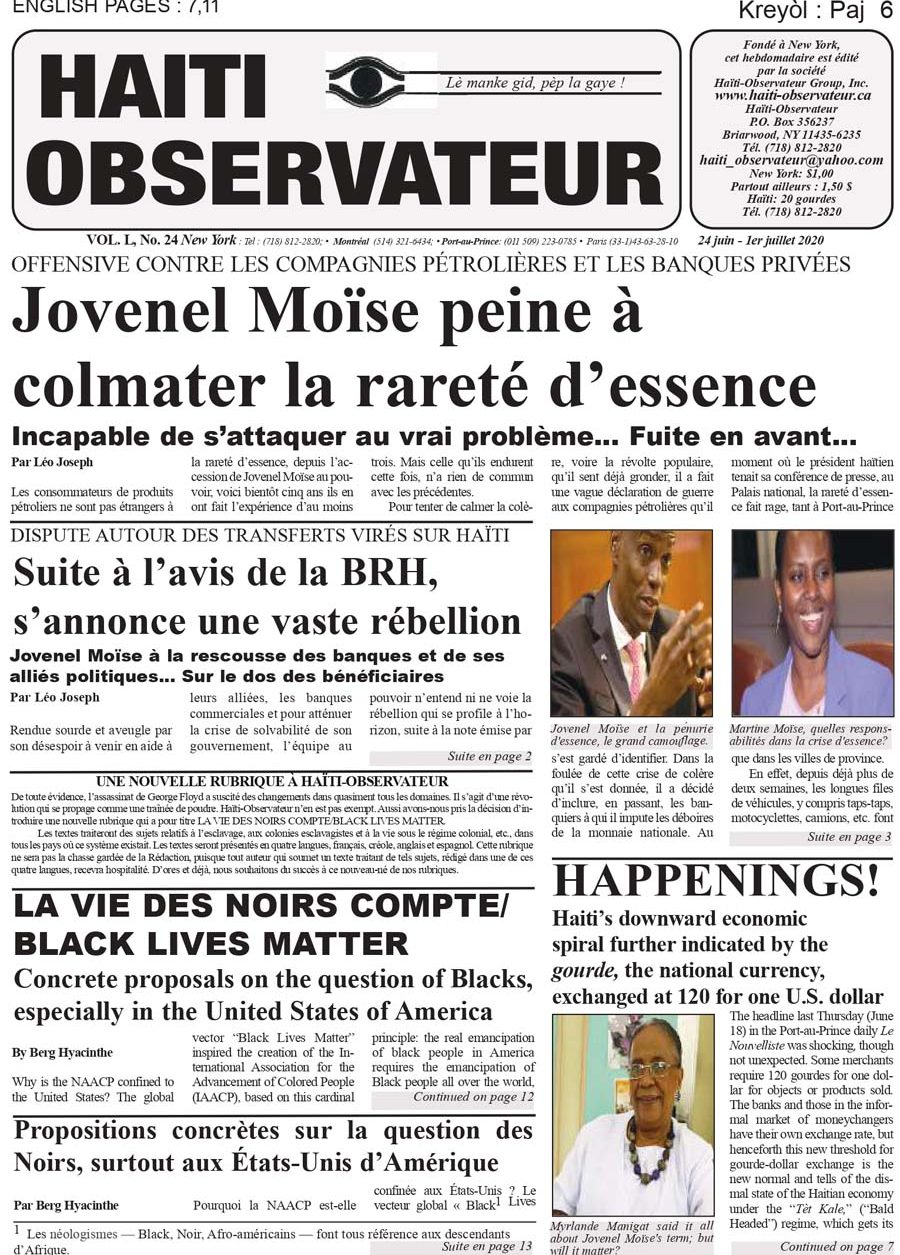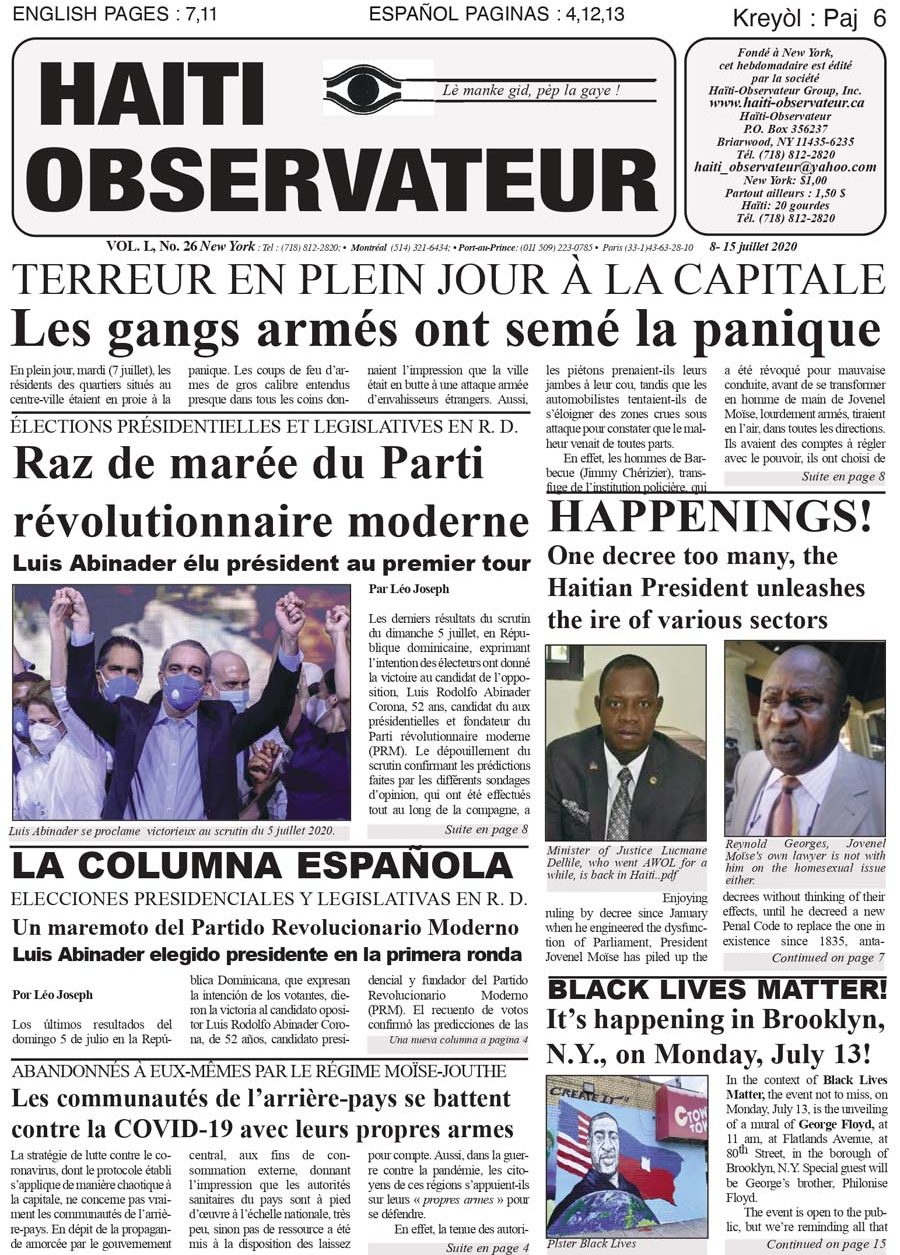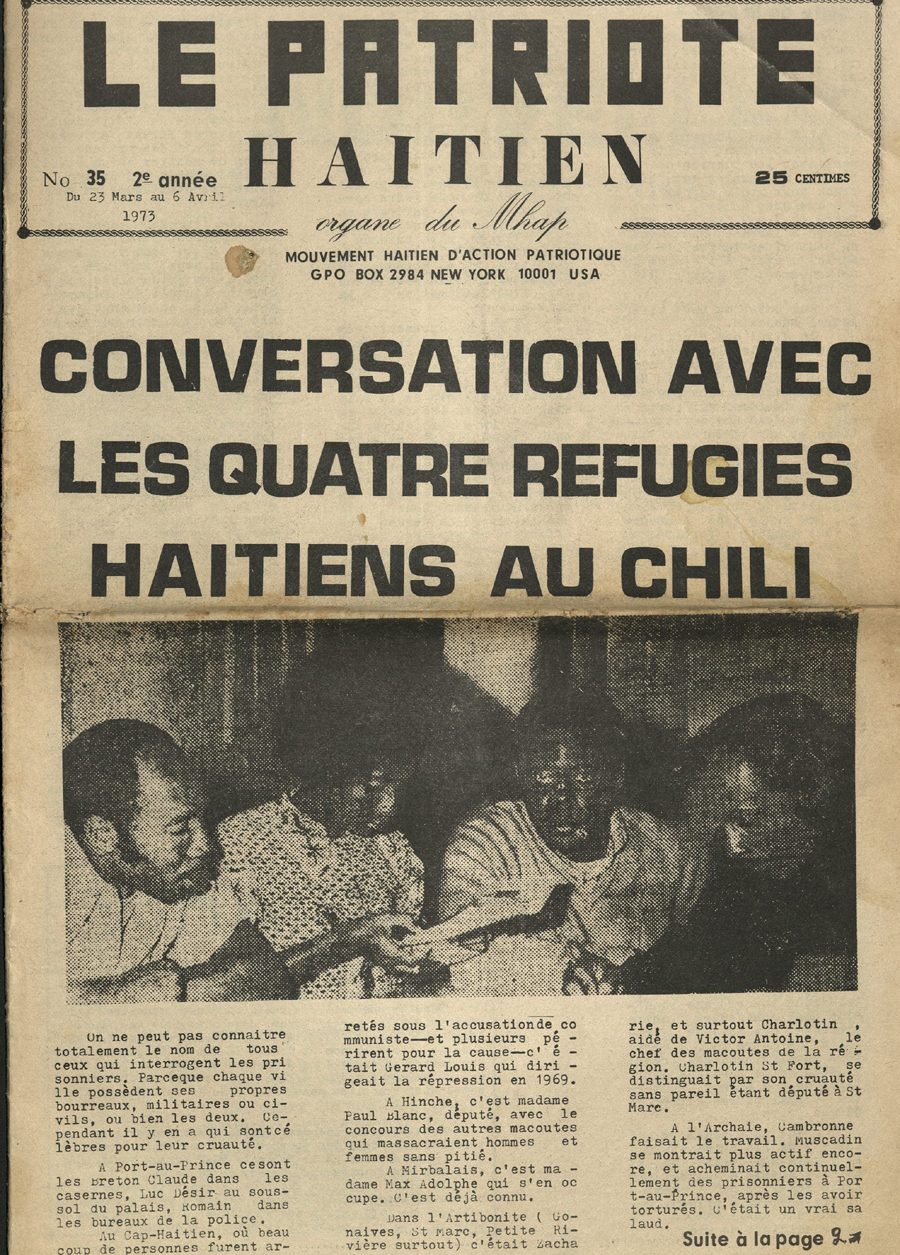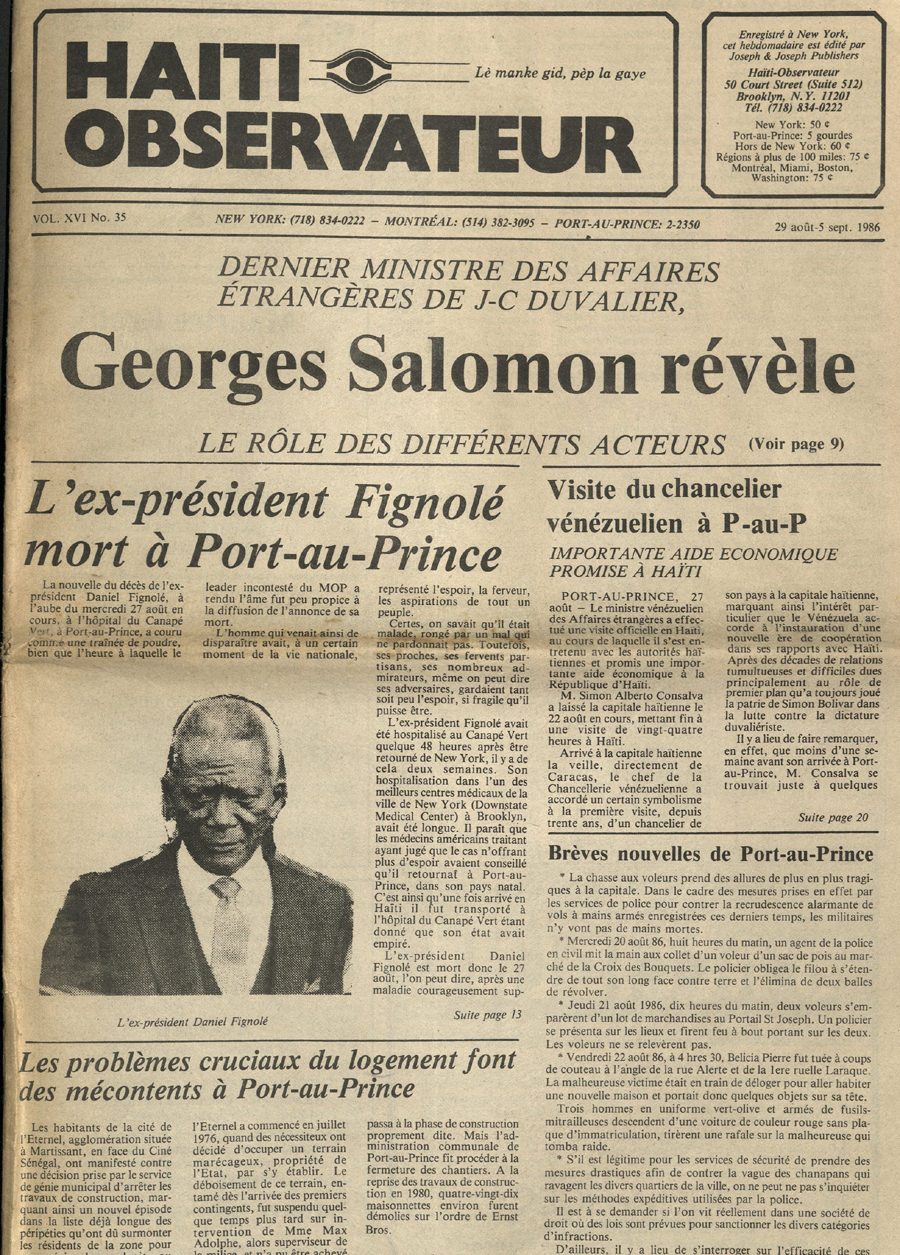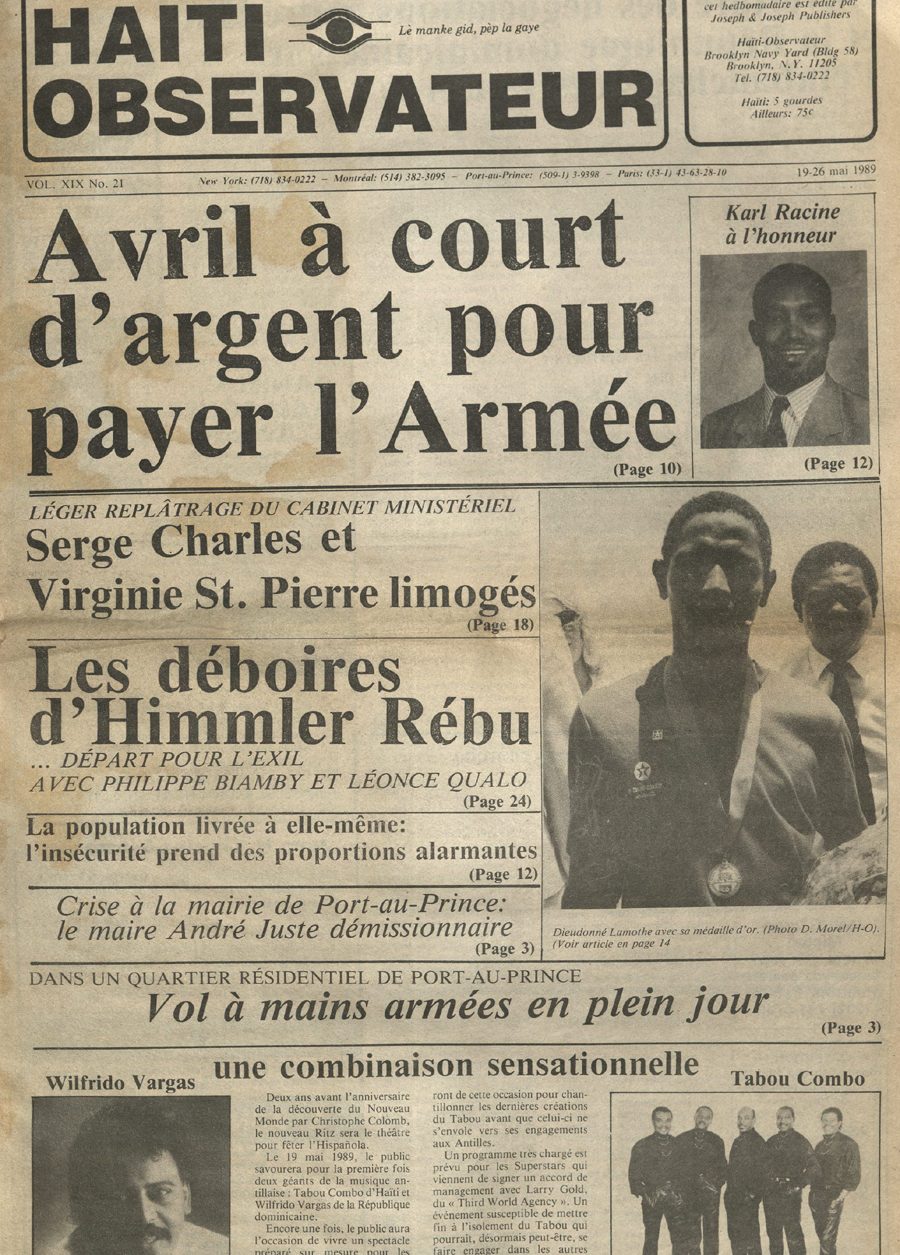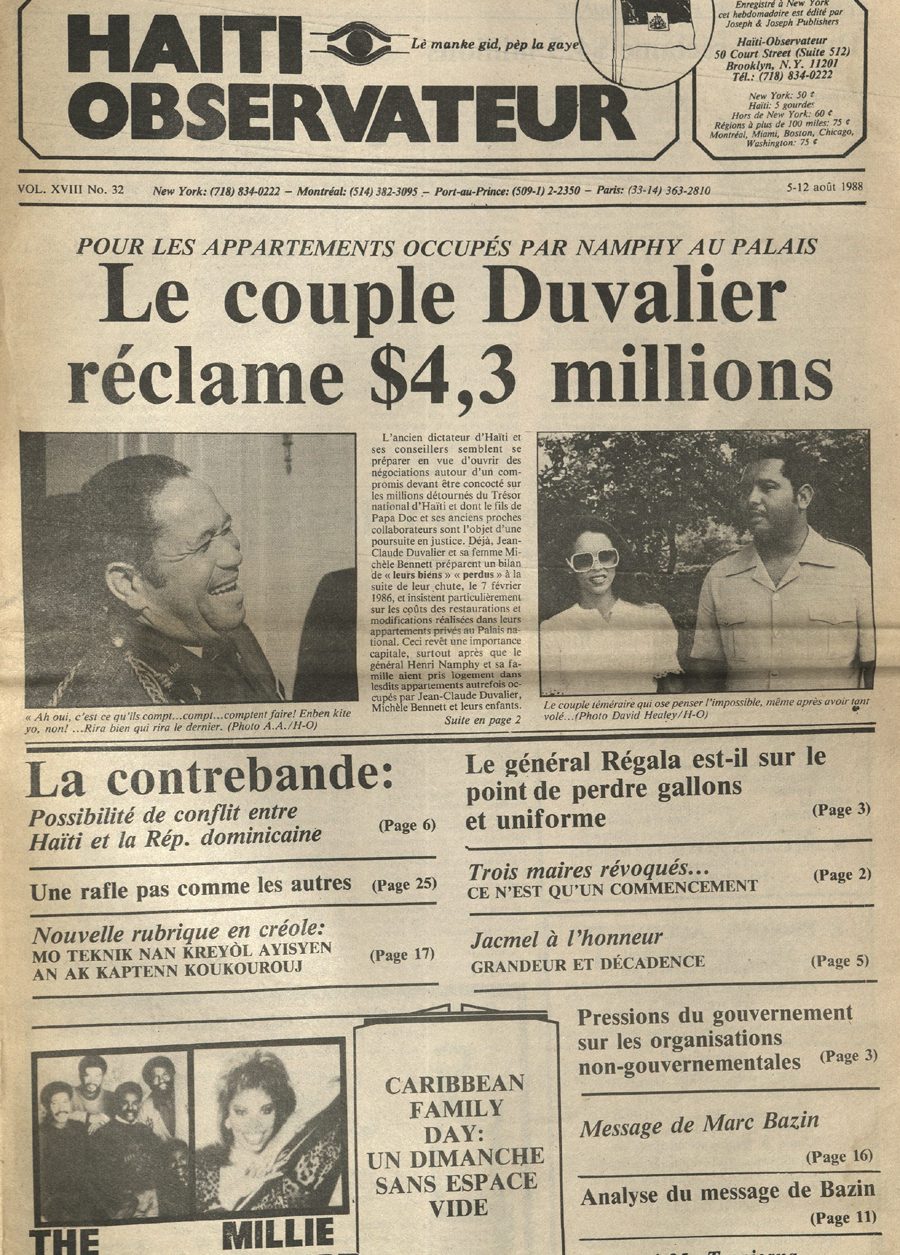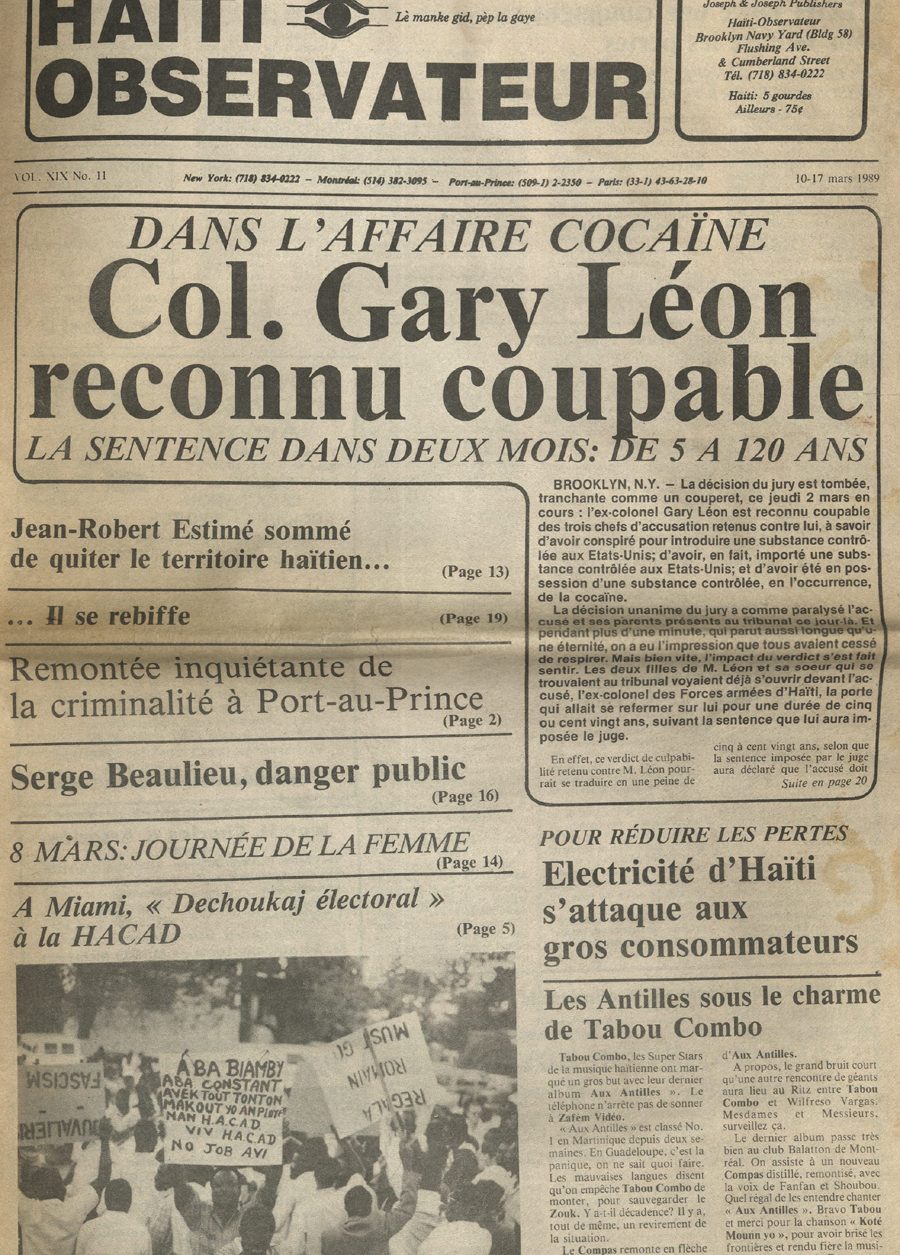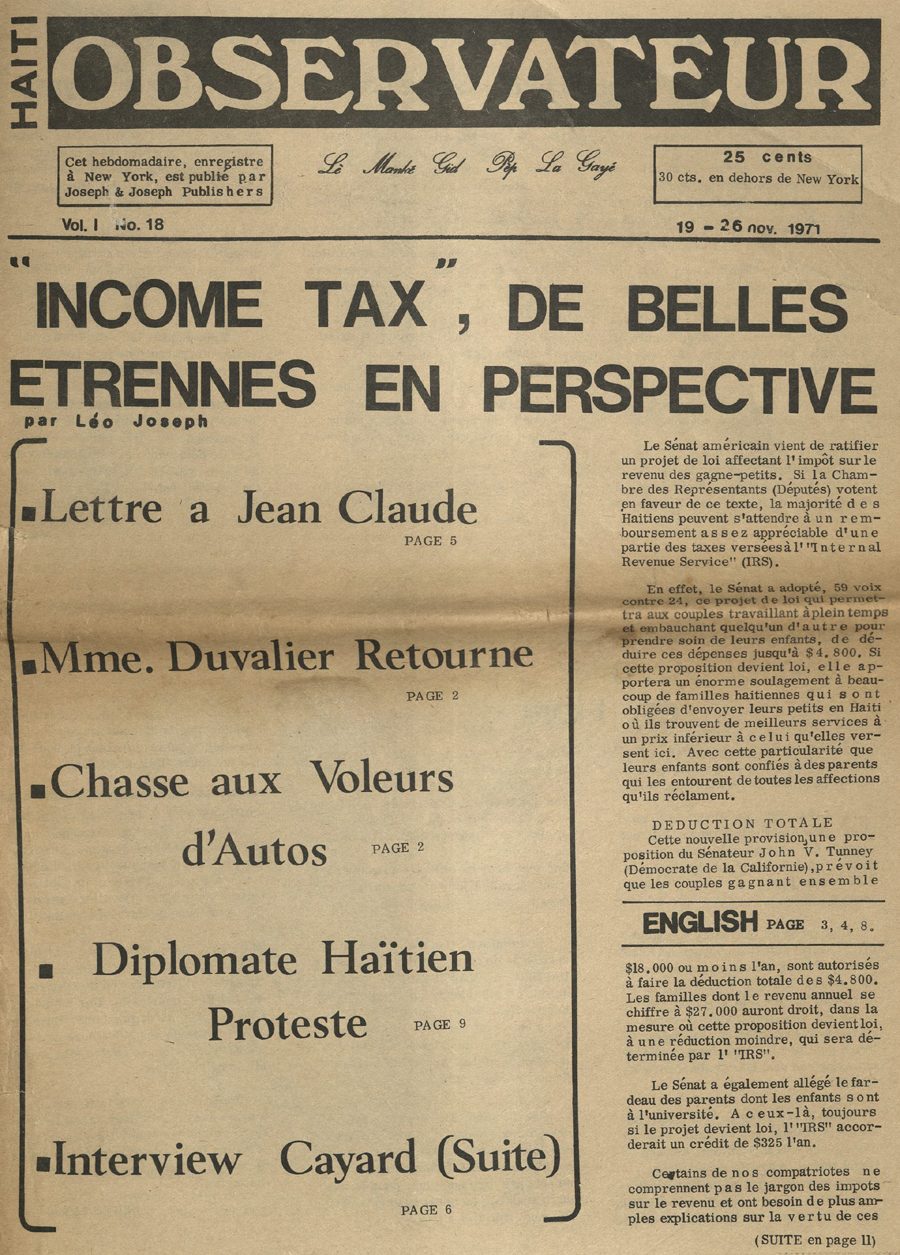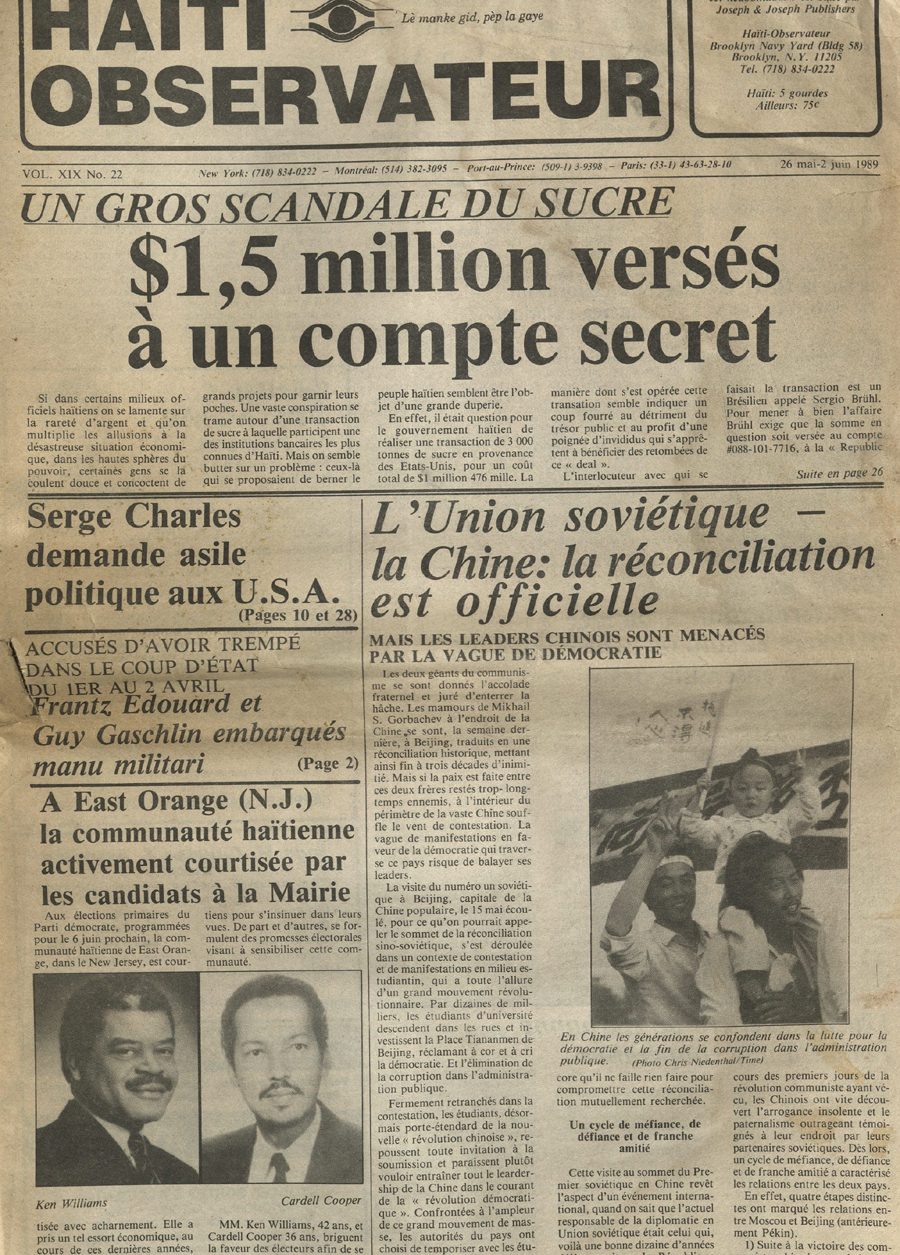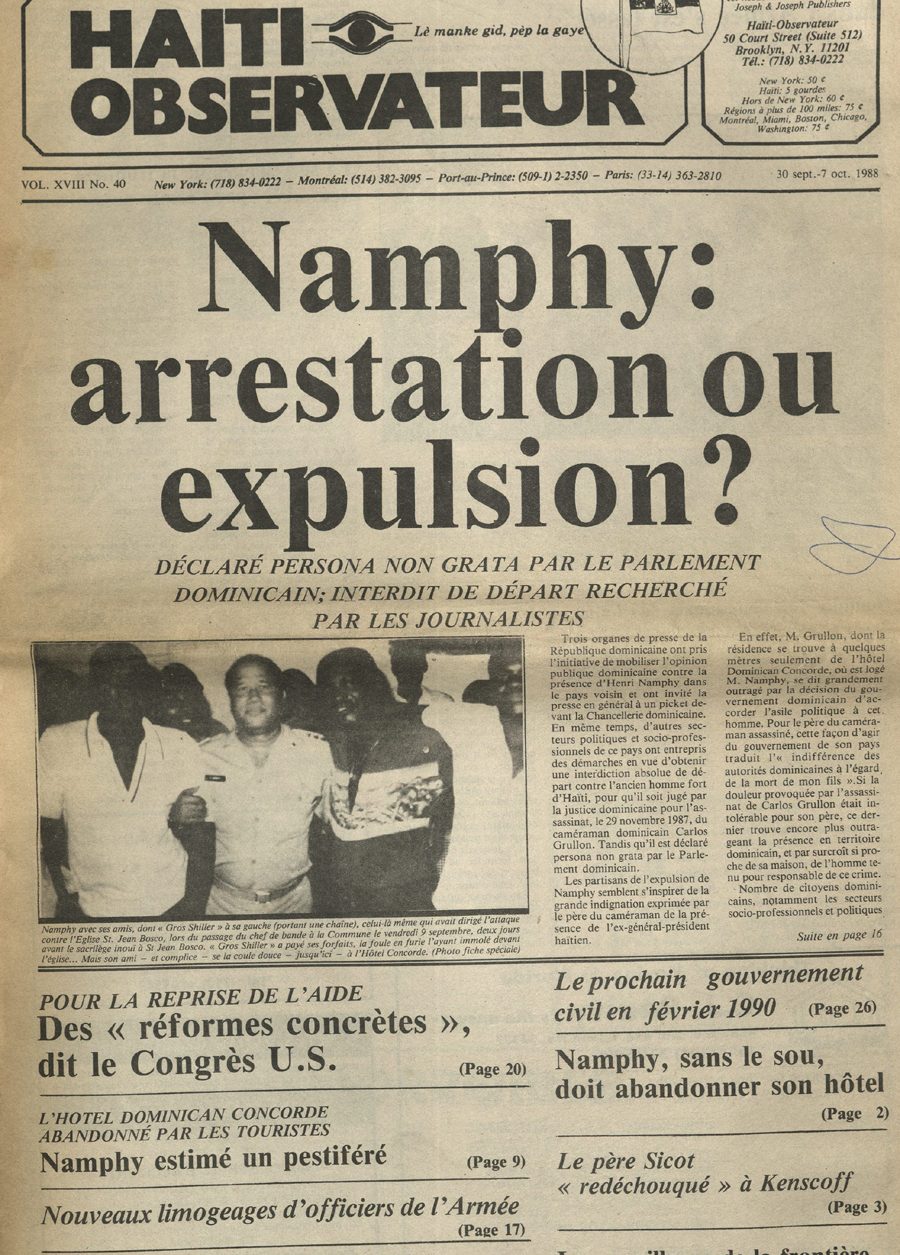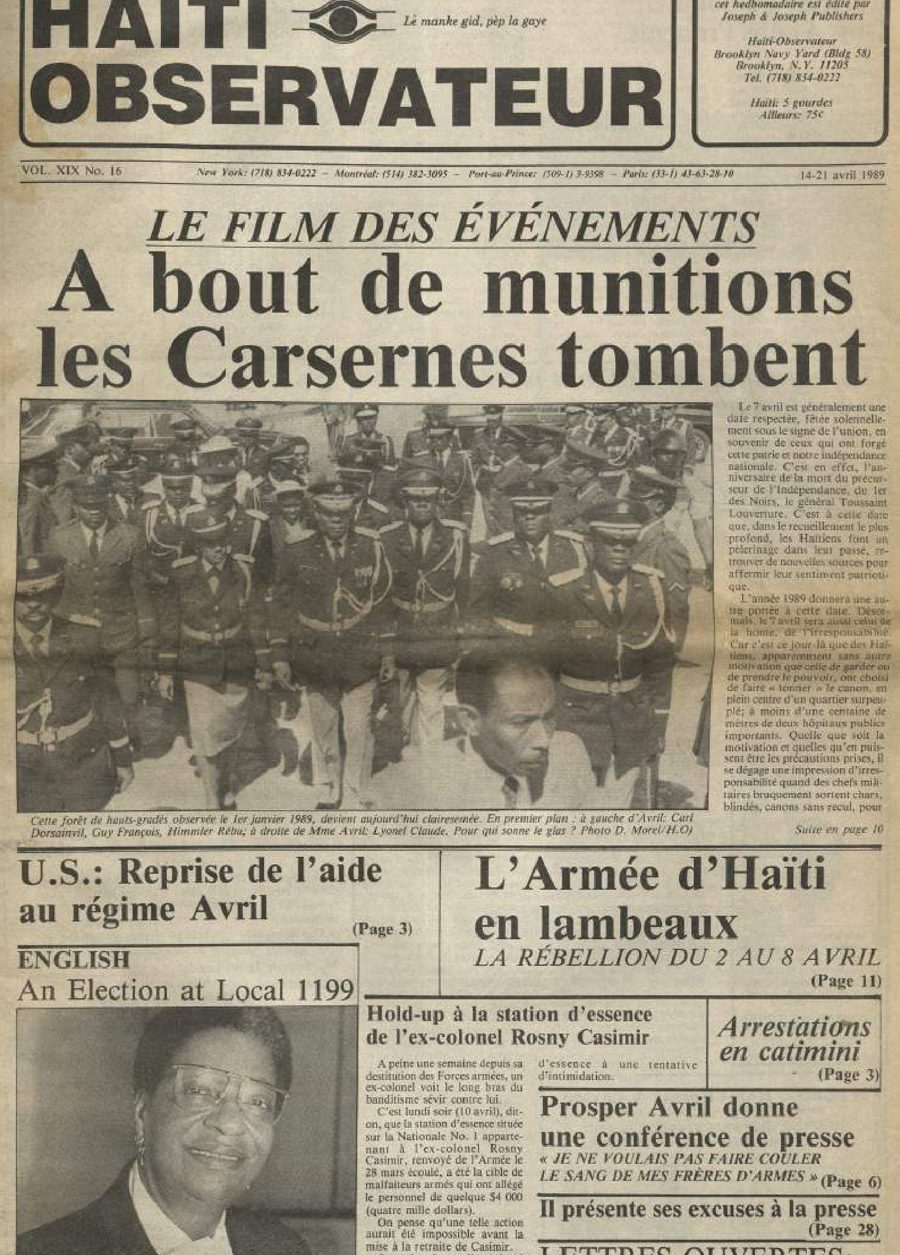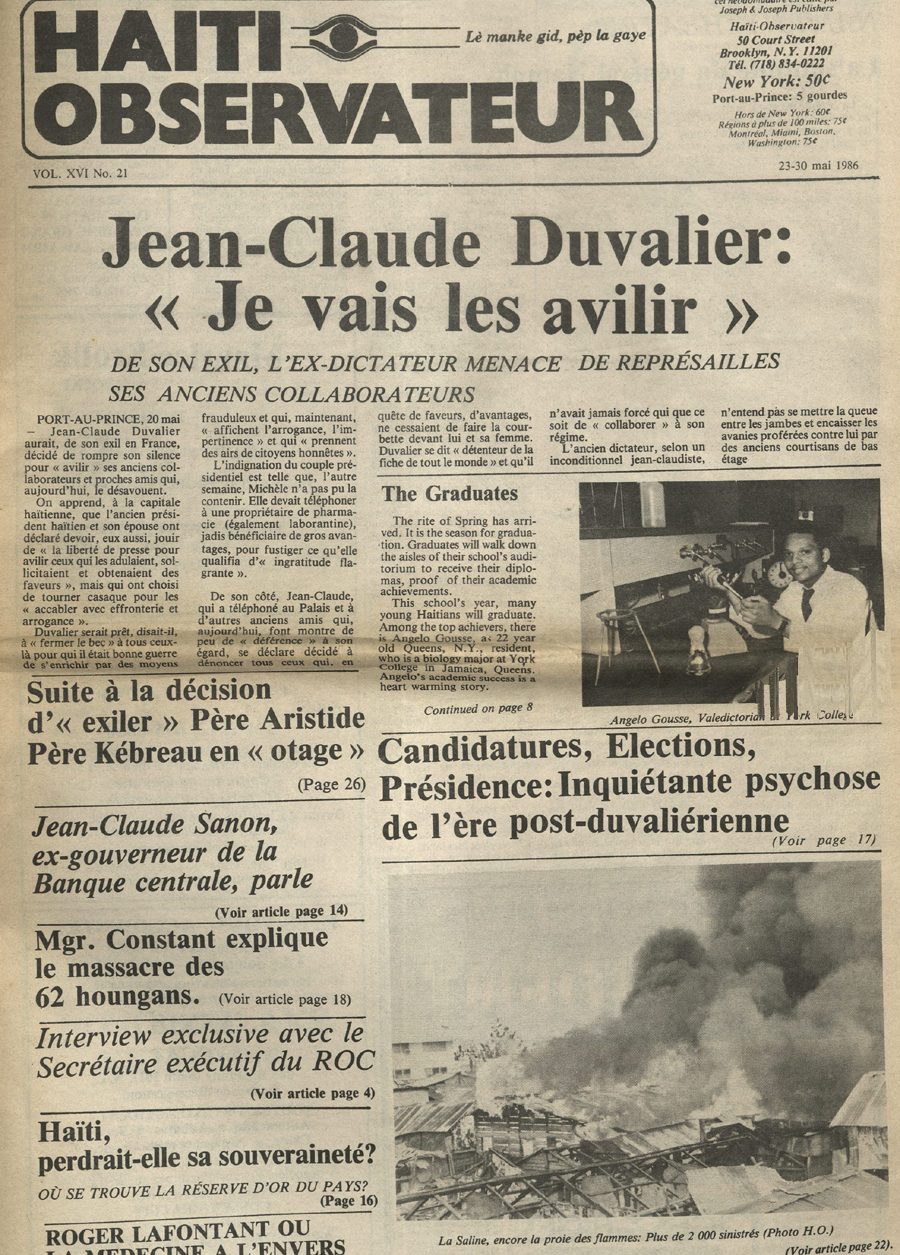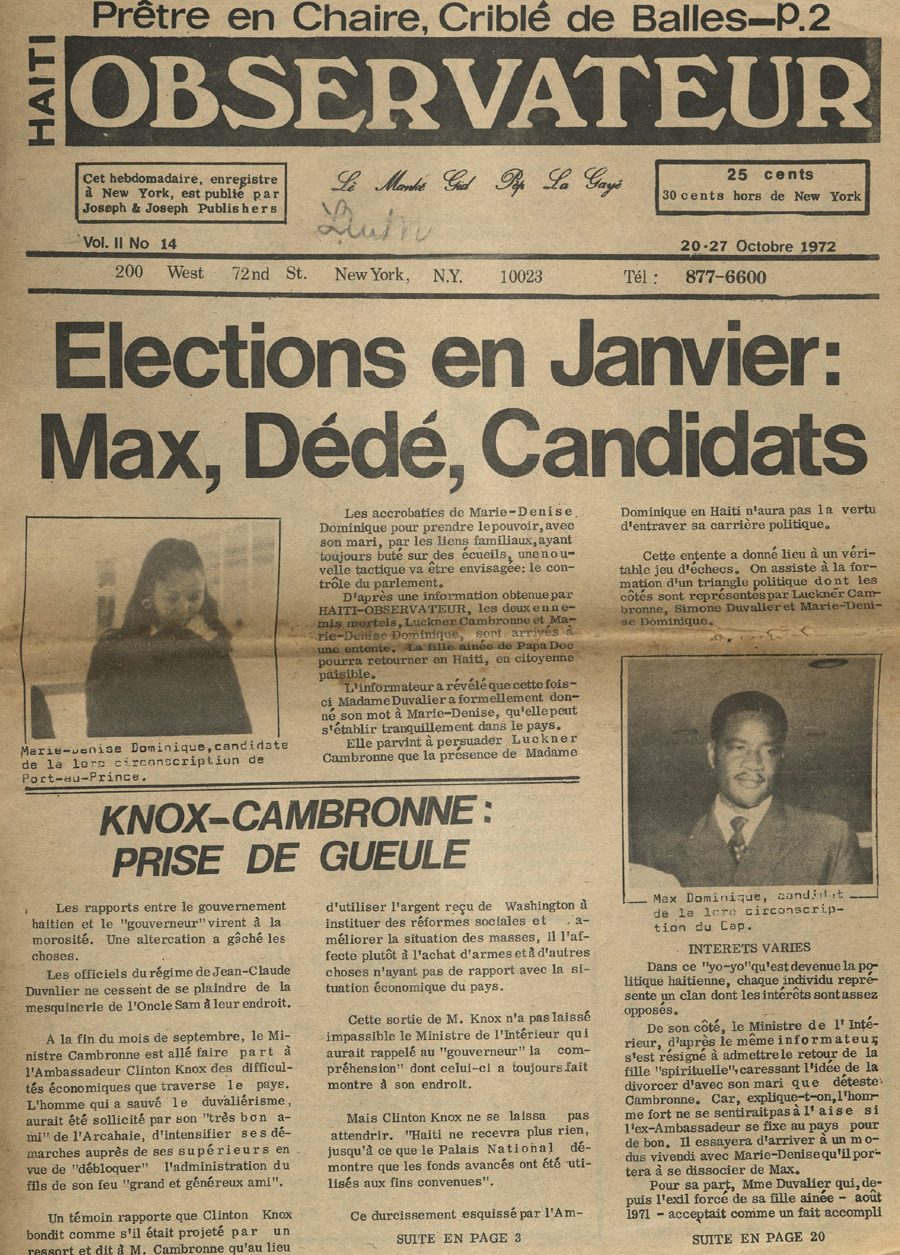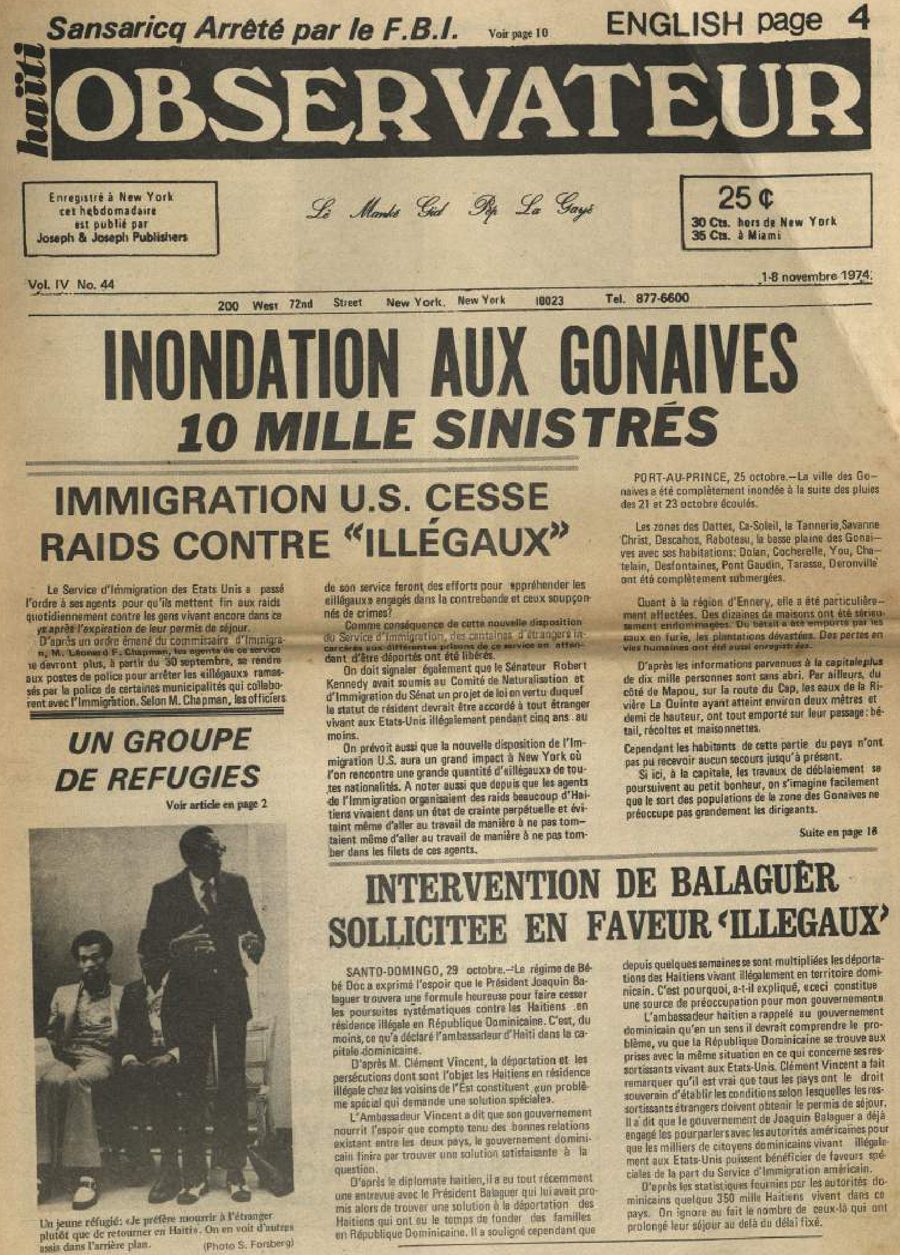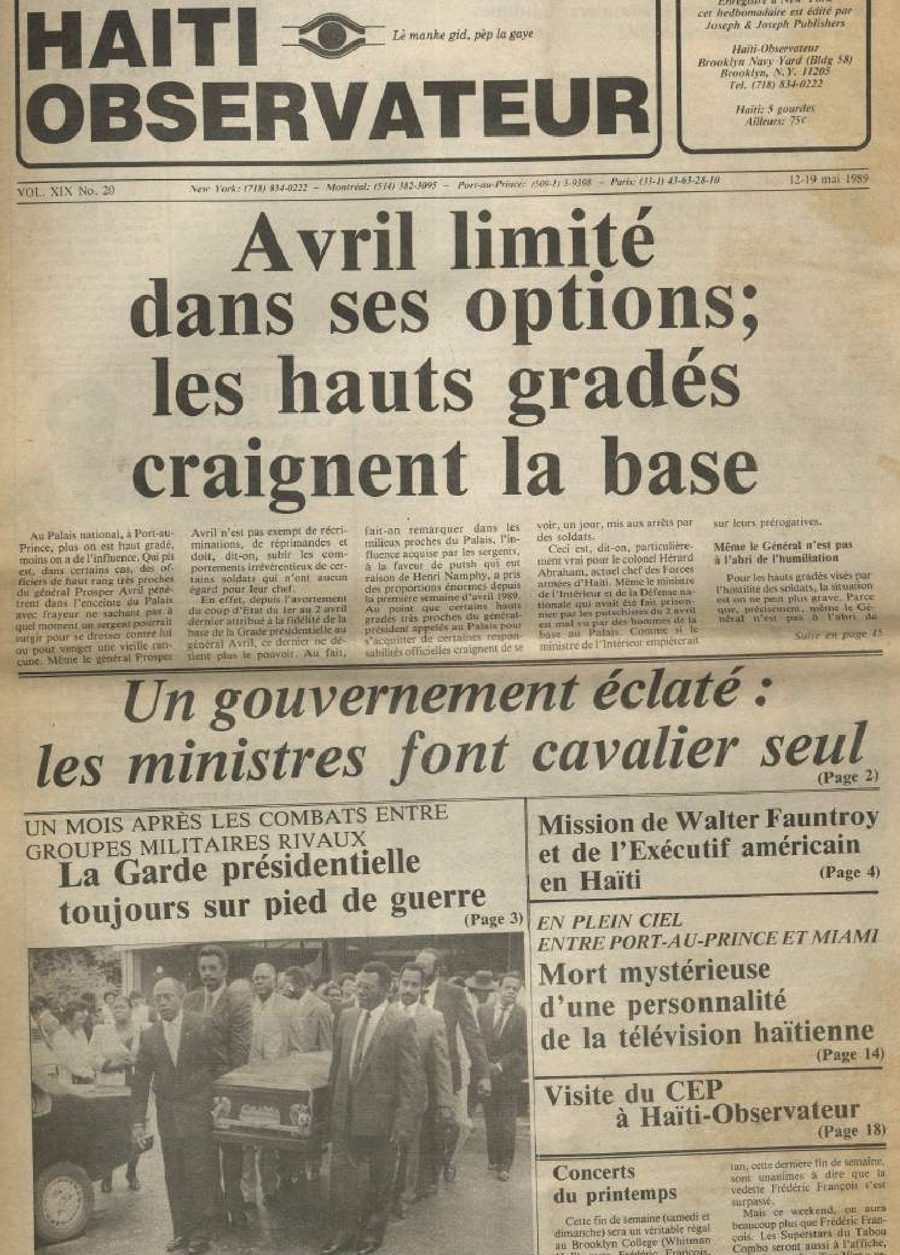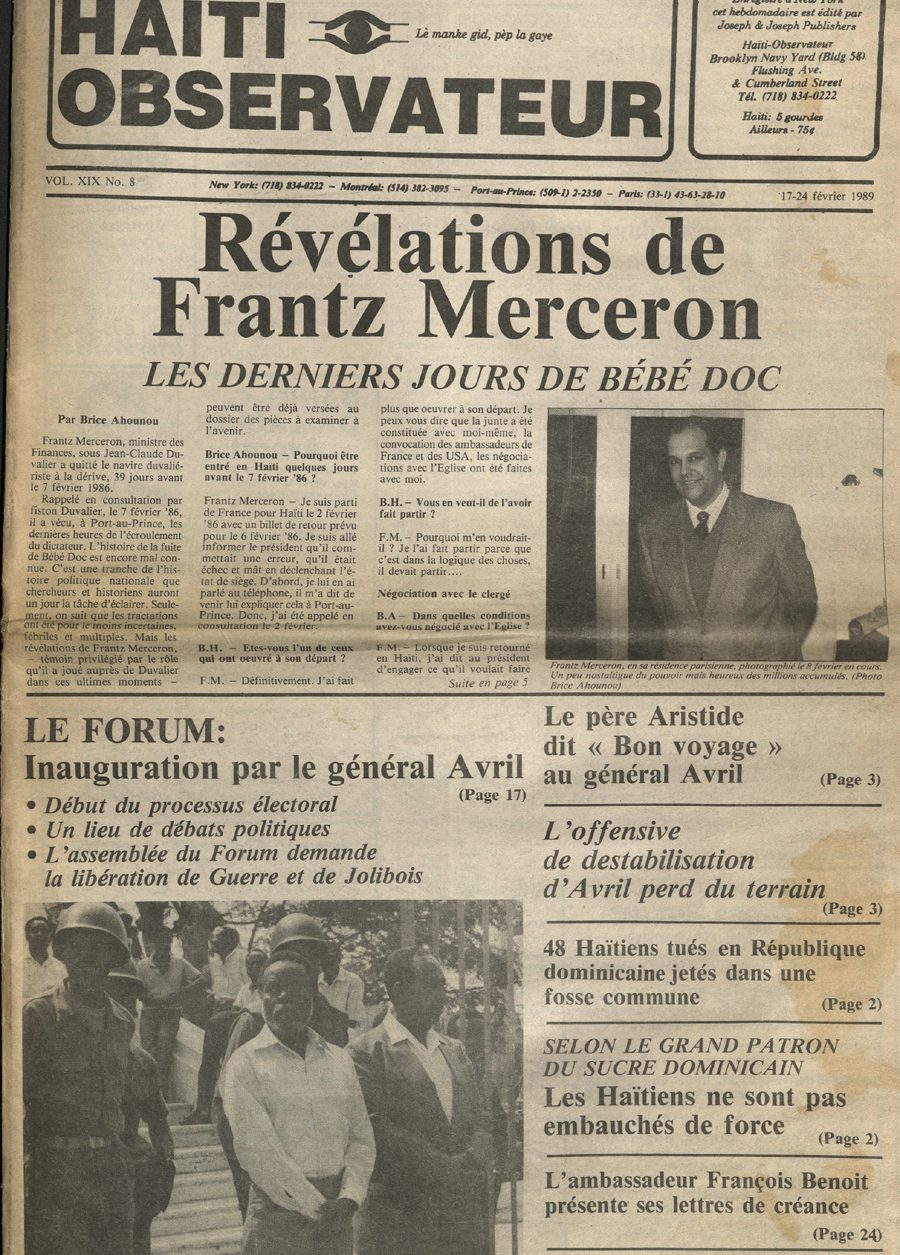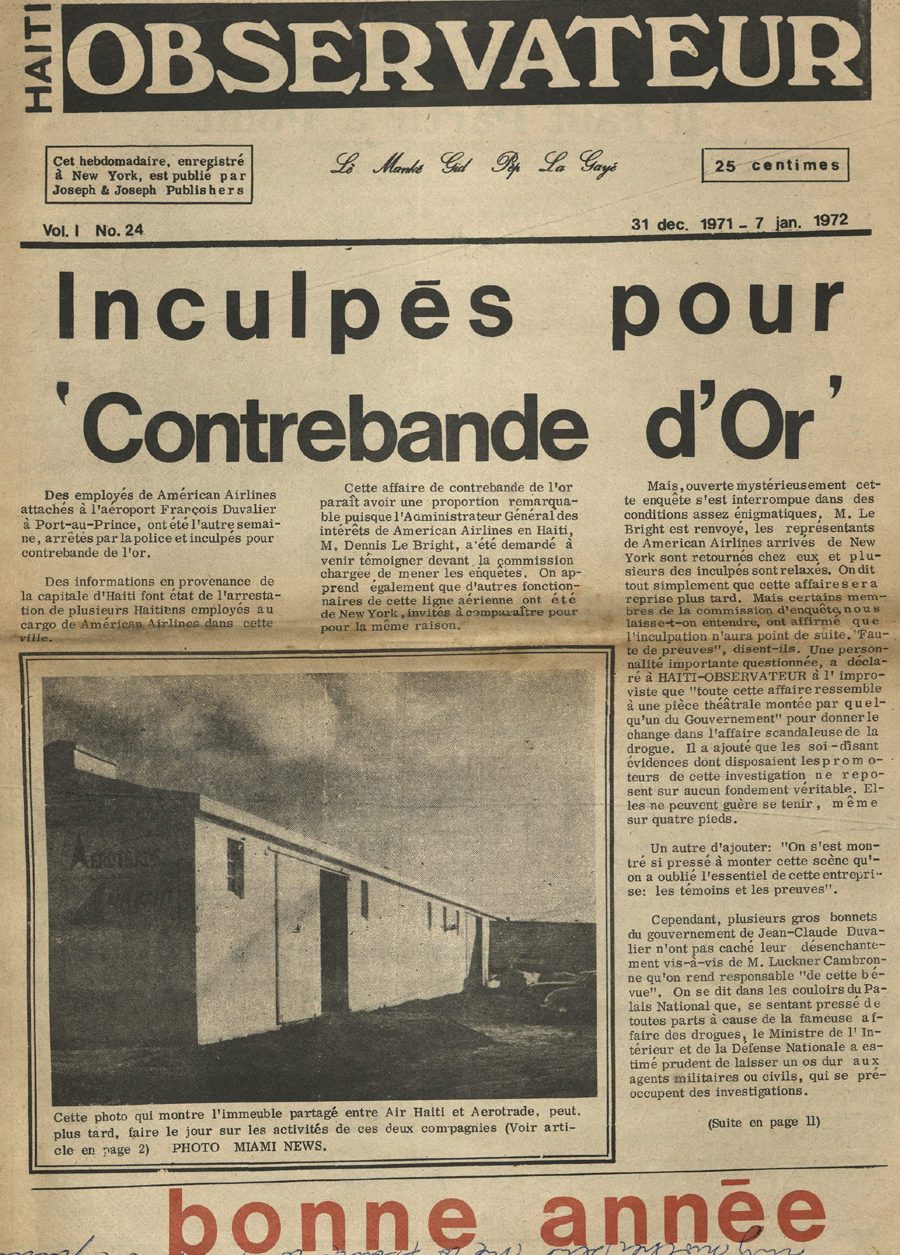
HAPPENINGS !
- A new Prime Minister, the fourth in 29 months and 15 days of the Jovenel Moïse presidency
Following a meeting Monday at 1 pm, with the presidents of the Senate and of the Lower House of Parliament, respectively Carl Murat Cantave and Gary Bodeau, Haitian President Jovenel Moïse issued a decree, Monday afternoon, naming Fritz William Michel, 38, a pink bracelet wearer, meaning he is a member of the ruling party, as Prime Minister. Not much is known about the man that will replace Jean-Michel Lapin, who has been languishing in the Prime Minister post since he was designated as interim Prime Minister by President Moïse on March 20, two days after the sacking of Prime Minister Jean-Henry Céant on March 18. The latter was removed by an overwhelming vote of no confidence by the legislators of the Lower House, in complicity with the President. Mr. Moïse was visibly displeased with Prime Minister Céant, especially for the latter is insistence in pursuing those responsible for the PetroCaribe heist.
Rezonodwes.com, a blog on line, reported late Monday that Fritz William Michel held some posts at the Finance Ministry where he was Chief Accountant in charge of the budget; he was also Administrative Director at the General Inspection. More over, he was Cabinet Chief when Jude Alix Patrick Salomon was Minister of Finance. Most recently, as Mr. Lapin was setting up his cabinet, Mr. Michel was named Minister of Planning and External Aid, but was never installed because the Prime Minister-designate failed in three occasions to present the general policy of his administration to Parliament.
No information is given about the age of the newly designated Prime Minister who appears very young. Neither much is known about his political leanings. Will he fare better than Jean-Michel Lapin who, as interim Prime Minister, could constitutionally be at the post for 30 days ? On failing to meet the 30-day deadline, he continued for three more months, as of last Saturday, July 20.
To go through three Prime Ministers in 29 months and 15 days, President Moïse has set a presidential record that could still be broken by him if his new choice for Prime Minister fails to be approved by Parliament. The clock has begun running on Fritz William Michel. The President cannot afford another long wait to have a running government, because the International Monetary Fund (IMF) is still waiting an appraisal of the new Prime Minister and his cabinet before renegotiating another loan package like the no-interest $229 million over three years, that was approved by an IMF staff with PM Céant’s cabinet, pending IMF Board approval.
Meanwhile, other financial institutions are waiting on IMF’s decision before making any move to help Haiti whose economy is in the doldrums. The Haitian gourde, the local currency, has lost about 40% of its value in the past two years and inflation is at 18% and rising. Some state employees, specifically in the diplomatic missions, saw their last checks in February. The senators and deputies, as the Congress members are called, were last paid in May. That goes also for their staff in Port-au-Prince, but those in their field offices were last paid in December. Moreover, such benefits as prepaid fuel and telephone cards for many employees, including the legislators, have been cut.
Following his OpEd in the Miami Herald, Jovenel Moïse is said to be “unfit” to be President
In a bold move to help besieged Haitian President Jovenel Moïse by softening his image for readers of an American newspaper, the million-dollar-lobbyists apparently have failed, because the facts contradict the propaganda. In fact, the image-makers have brought out some hitherto silent critics who have gone on a full offensive.
The July 18 OpEd in the Mia mi Herald by Monique Clesca, a journalist, writer and retired UN official, must have been quite disconcerting for those who were clapping for their apprentice journalist. The headline of Ms. Clesca’s opinion piece—“Jovenel Moïse is not fit to be Haiti’s President. He should resign” —nullifies what appeared, under Mr. Moïse’s byline, four days earlier. It is a stinging rebuttal of the president-journalist’s frontpage splash of the previous Sunday (July 14), with his broad-smile pho to in the newspaper, which had first published the same OpEd on July 12.
Apparently, the President’s lobbyists wanted a better treatment of their client, thus the front-page introduction with the mention that it is an “exclusive opinion essay for the Miami Herald,” with the catchy phrase: “Give Haiti a government to give Haiti a better future.” A quote from the full article that appeared on page 5C. Certainly, the Miami Herald will not disclose the financial deal that secured the Haitian president’s front-page mention. We strongly believe it was not for free.
At the outset, Ms. Clesca disavows the Chief of State for his preference to address foreigners instead of his own people. “Many Haitians complain that President Jovenel Moïse would rather speak to foreign officials, not to the people he is supposed to lead.” In addition, she explains: “Haitians learned from a foreign newspaper… that President Jovenel Moïse plans to call on the Organization of American States (OAS) to conduct an audit of PetroCaribe funds, the Venezuelan oil aid meant to improve the lives of the poor.” She asserts, “it is a scandalous and shameful proposition for two reasons, in addition to being perversely counterintuitive.”
Ms. Clesca goes on to show how the president disses “the state institution mandated” to carry out audits of government agencies. In fact, the Court of Auditors and Administrative Disputes (French acronym CSC/ CA), already has issued a “600-plus page report” in which it spells out President Moïse’s participation in the heist of the PetroCaribe Fund, an “embezzlement scheme that defrauded Haiti’s citizens out of almost 4 billion PetroCaribe dollars.”
We will point out that it was President Moïse himself who, disputing the dirt that the
Senate Ethics and Anti-Corruption Commission had found about him maneuvered to have the CSC/CA take over the matter. Now that the Court of Auditors has discovered more hanky-panky on the part of the president than what the Senatorial commission had found, President Moïse says he’s turning to the OAS to take over the duties of a State agency constitutionally entrusted with the job.
Ms. Clesca also states, “in 2017, Mo.se, then president elect, faced allegations of money laundering by the Central Unit of Financial Intelligence (UCREF), a government agency that investigates financial crimes.” By what Ms. Clesca writes next, one gets the picture of Jovenel Moïse’s style whenever he is caught in illegalities, even in criminal acts. “While Moïse denies all accusations,” she writes, “he makes a mockery
of state institutions by claiming the audit report is political; he fired the UCREF’s director once he took office. It is a disgrace for us to have a president with so little regard for Haiti’s institutions, no matter how weak they may be.”
Mr. Moïse really believes himself above the law, so whenever he is targeted by a Haitian institution, he moves to the next, until he has no other recourse. Then he turns to what he thinks are his foreign friends. “By continuing to be-little our accountability agencies,” Ms. Clesca writes, “Moïse not only disrespects Haitian people, but also distances himself from us. That’s why civil-society organizations, including Catholic bishops, Protestant pastor associations, business leaders and citizen groups have called on him to resign.”
Why did Jovenel Moïse failed to address Haitians at home? Because he has a disdain for his own people. Writes Ms. Clesca, “By writing in the Miami Herald, Moïse, in his own twisted way, told Haitians that he is not our president and signaled that he only trusts foreign institutions.” She goes on to show his cynicism when he pays no attention to mammoth demonstrations of millions against corruption; when he shows no sympathy to families in the La Saline shantytown in the capital of Port-au-Prince following a massacre by gangs, some of whom are said to be working for the authorities. Since that massacre took place last November, no official investigation has been undertaken, although the Board overseeing the Police named at least one high government official and two police officers involved in the dastardly act.
Ms. Clesca explains the wretchedness in which the people live, with the economy in free fall and the poor suffering the most and much more. We wished we could have covered it all, but we refer our readers to the Miami Herald on Google. Enter the name of “Monique Clesca regarding Jovenel Moïse’s Miami Herald’s OpEd.”
However, we cannot leave without some concluding remarks from someone who is such an eloquent spokesperson for us Haitians. Read on, “Haiti’s current regime is mute and blind to our suffering. Moïse’s indifference is as sinister as his arrogance. His repeated assault on our dignity must stop. His narrative is clear: I talk to foreign media and governments, and international institutions rather than guarantee the functioning of my country’s institutions.”
And this final paragraph : “Our narrative is clear: First, President Jovenel Moïse, the former administration and all their enablers cited in the multiple reports of corruption and embezzlement of state funds must answer to Haitian institutions. Second, my voice amplifies those of my countrymen and countrywomen to ask the United States and [the] international community to be allies –and not meddlers or imposers of solutions or schemes. Let us Haitians find Haitian solutions to our Haitian problems. Third, Jovenel Mo.se, as the face of everything that is wrong with Haiti’s current political class, does not speak for us, Haitian people.” AMEN!
cet article est publié par l’hebdomadaire Haïti-Observateur, édition du 24 juillet 2019, Vol.XXXXIX No.29 et se trouve en P. 7 à : http://haiti-observateur.info/wp-content/uploads/2019/07/H-O-24-juillet-2019.pdf


